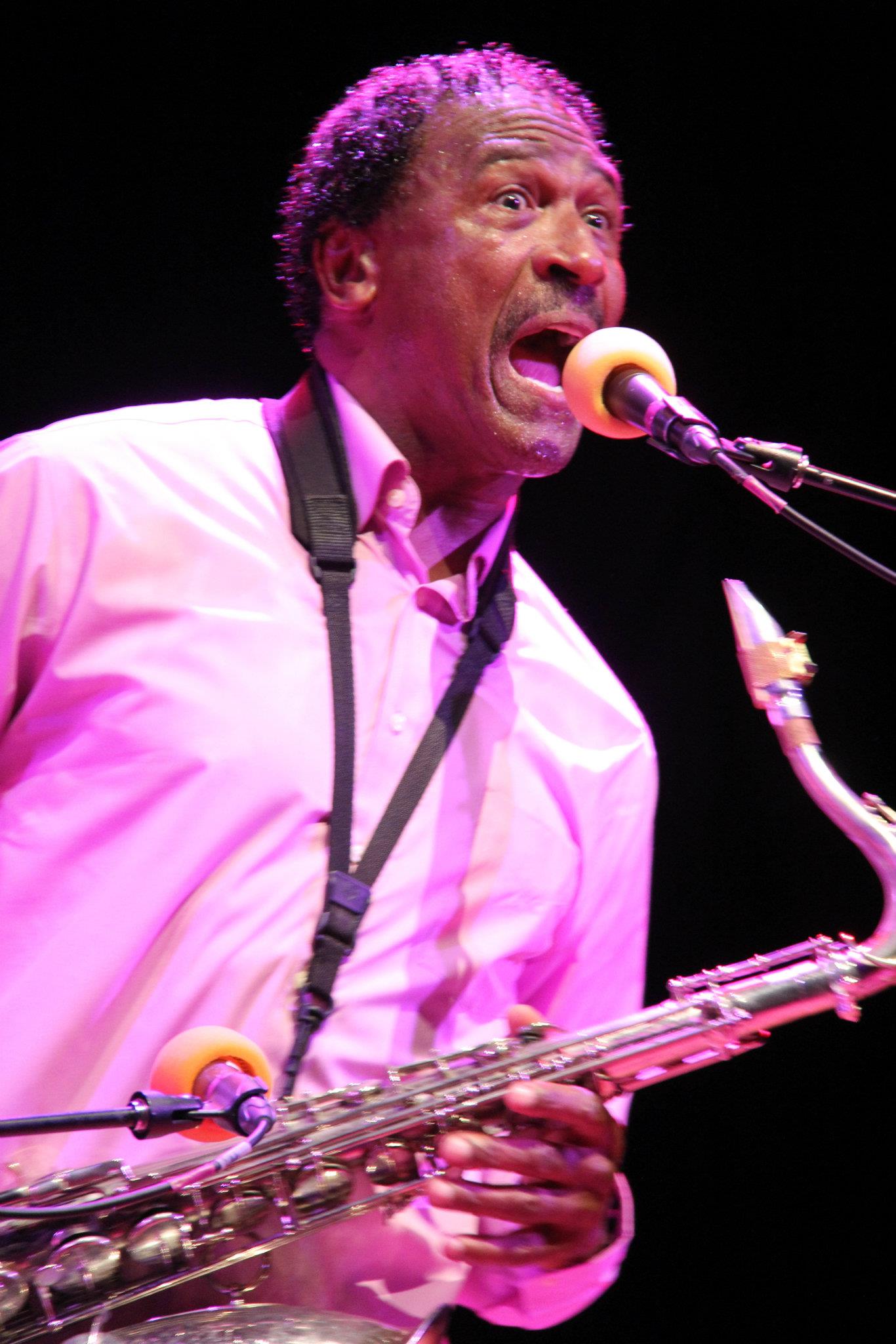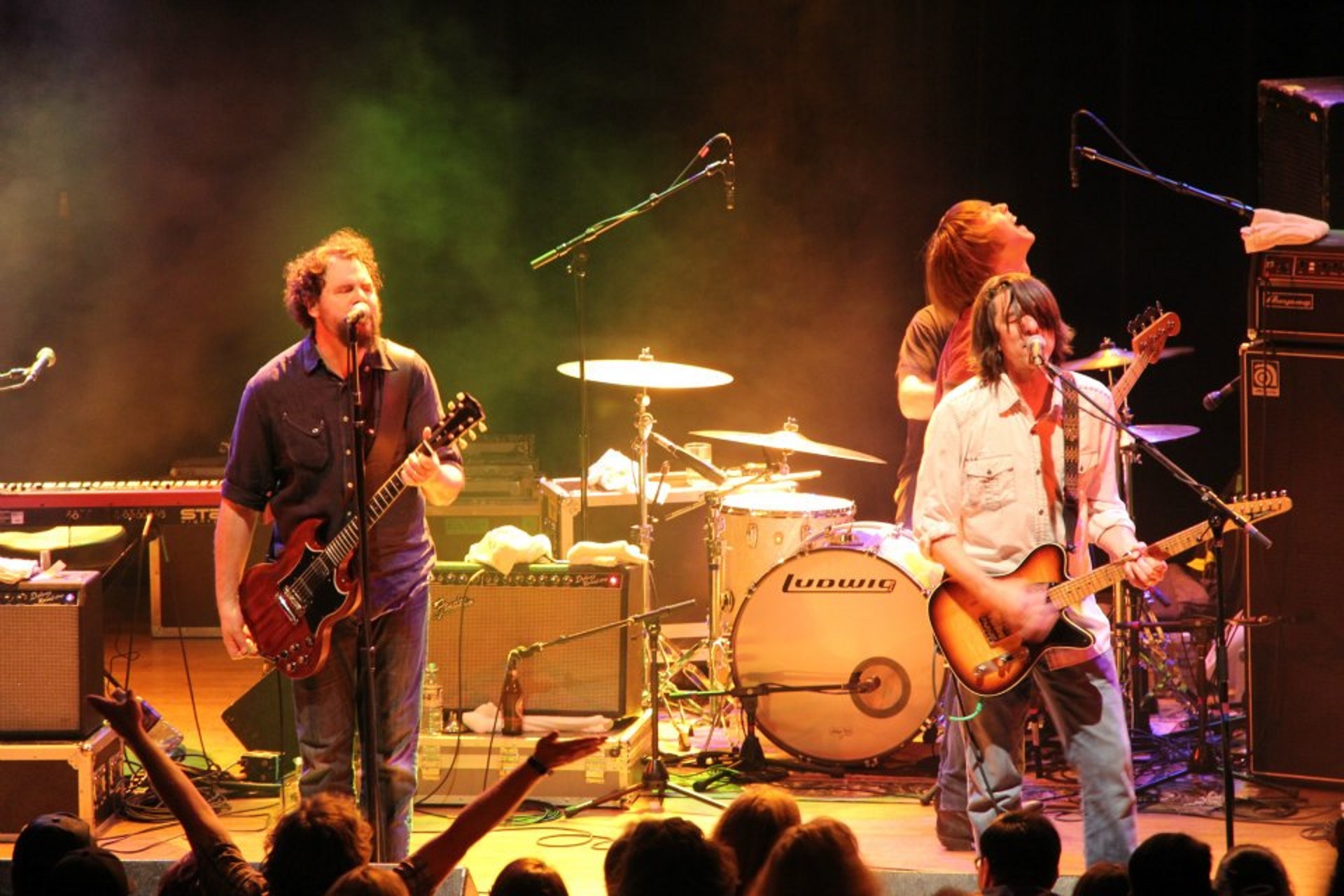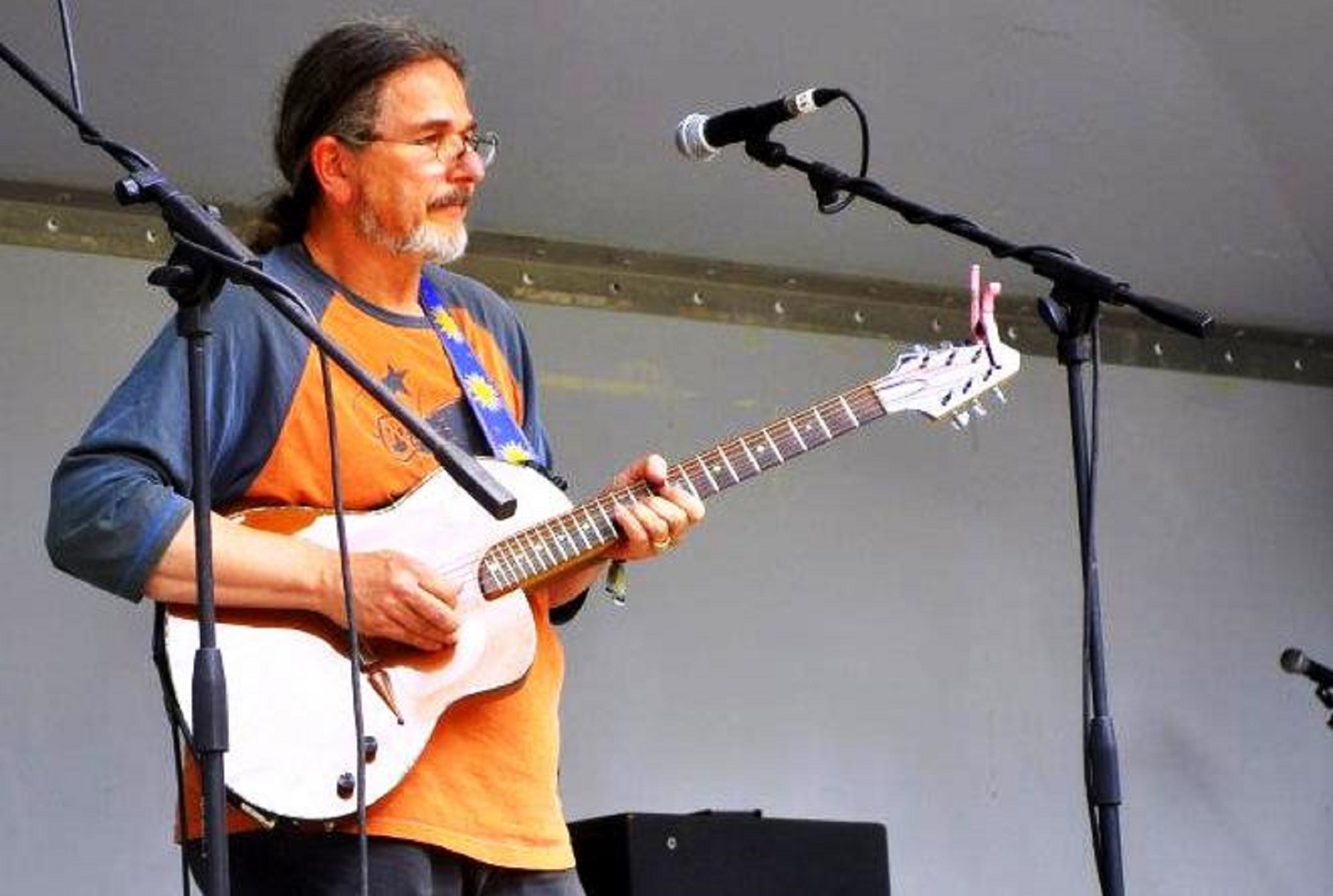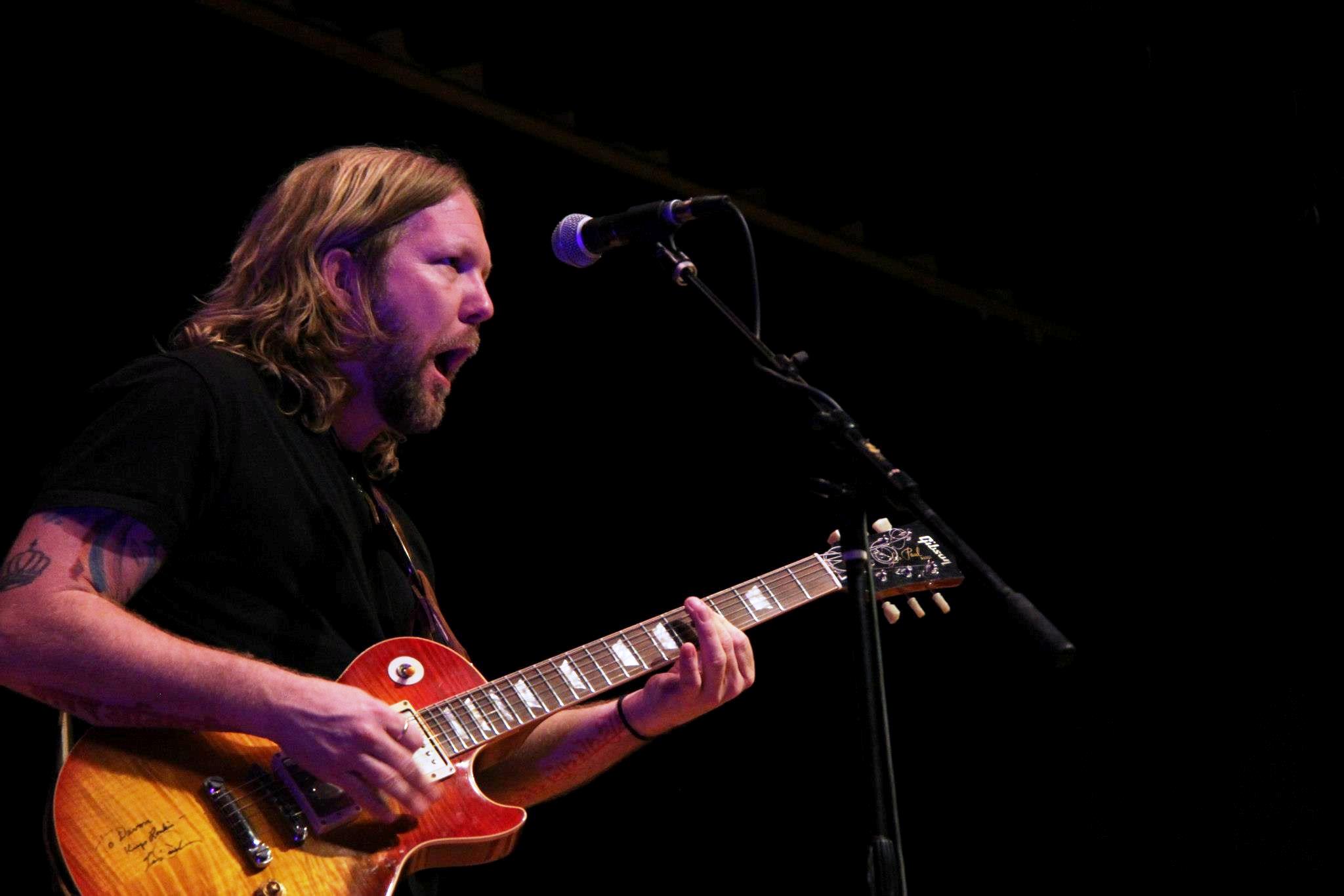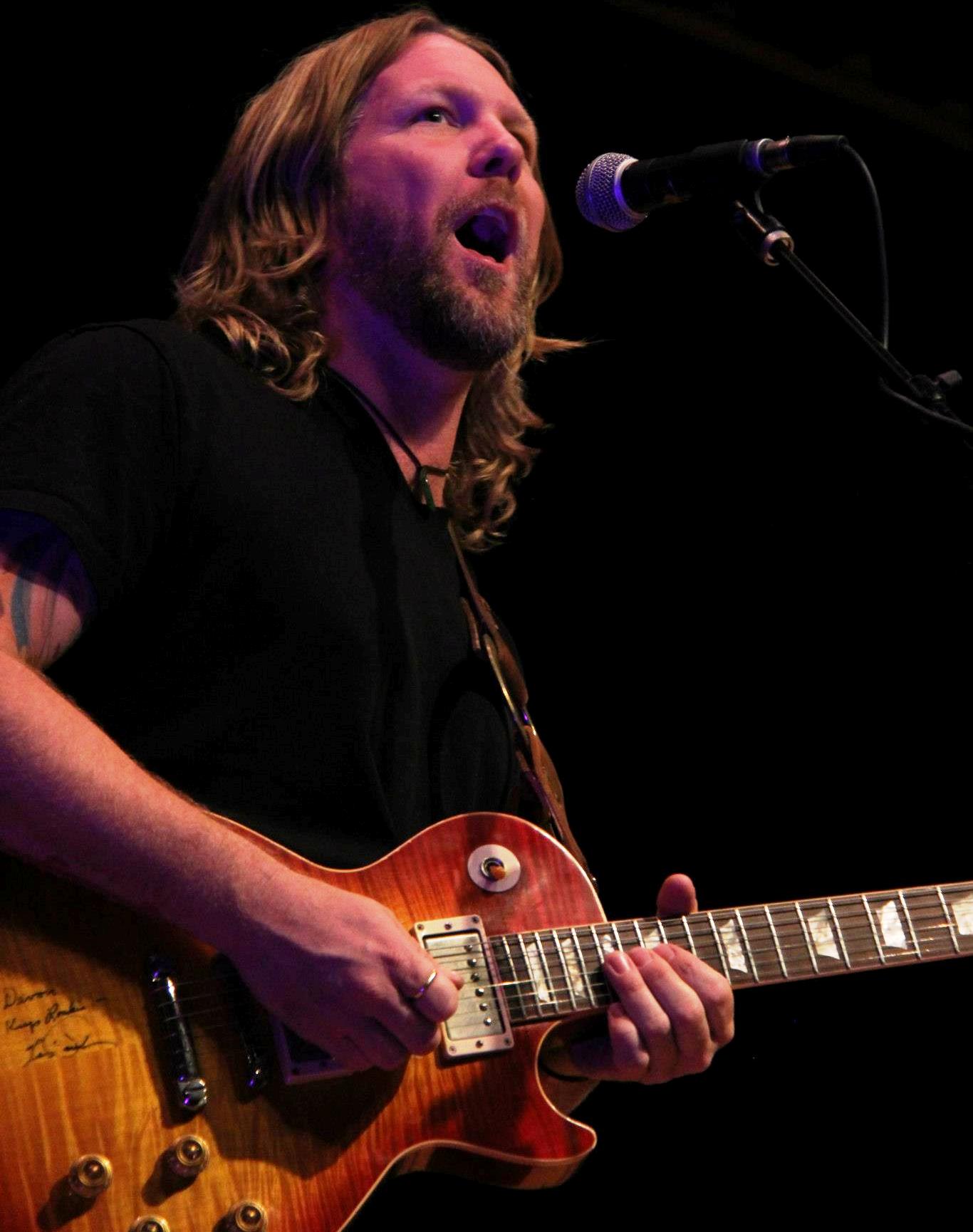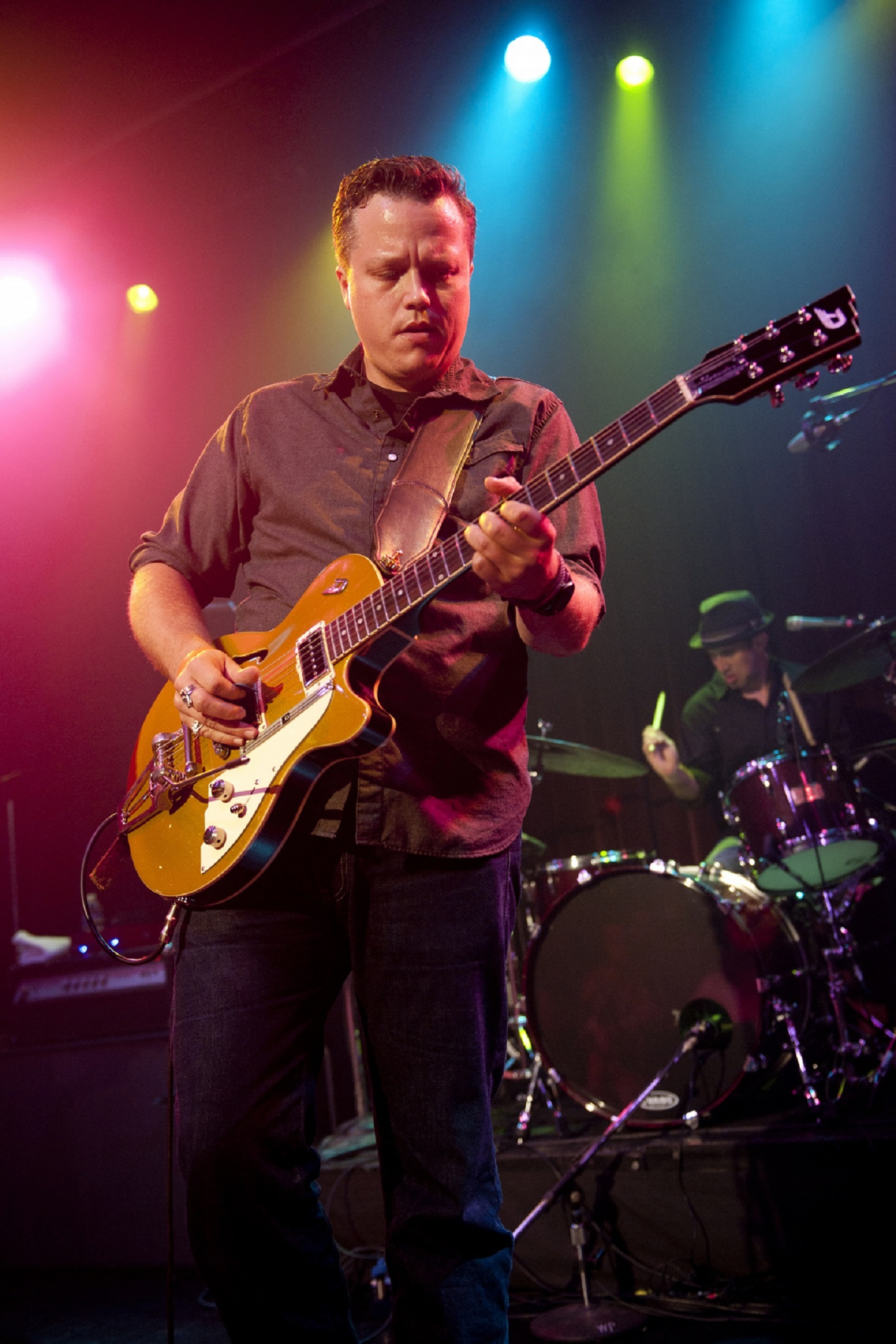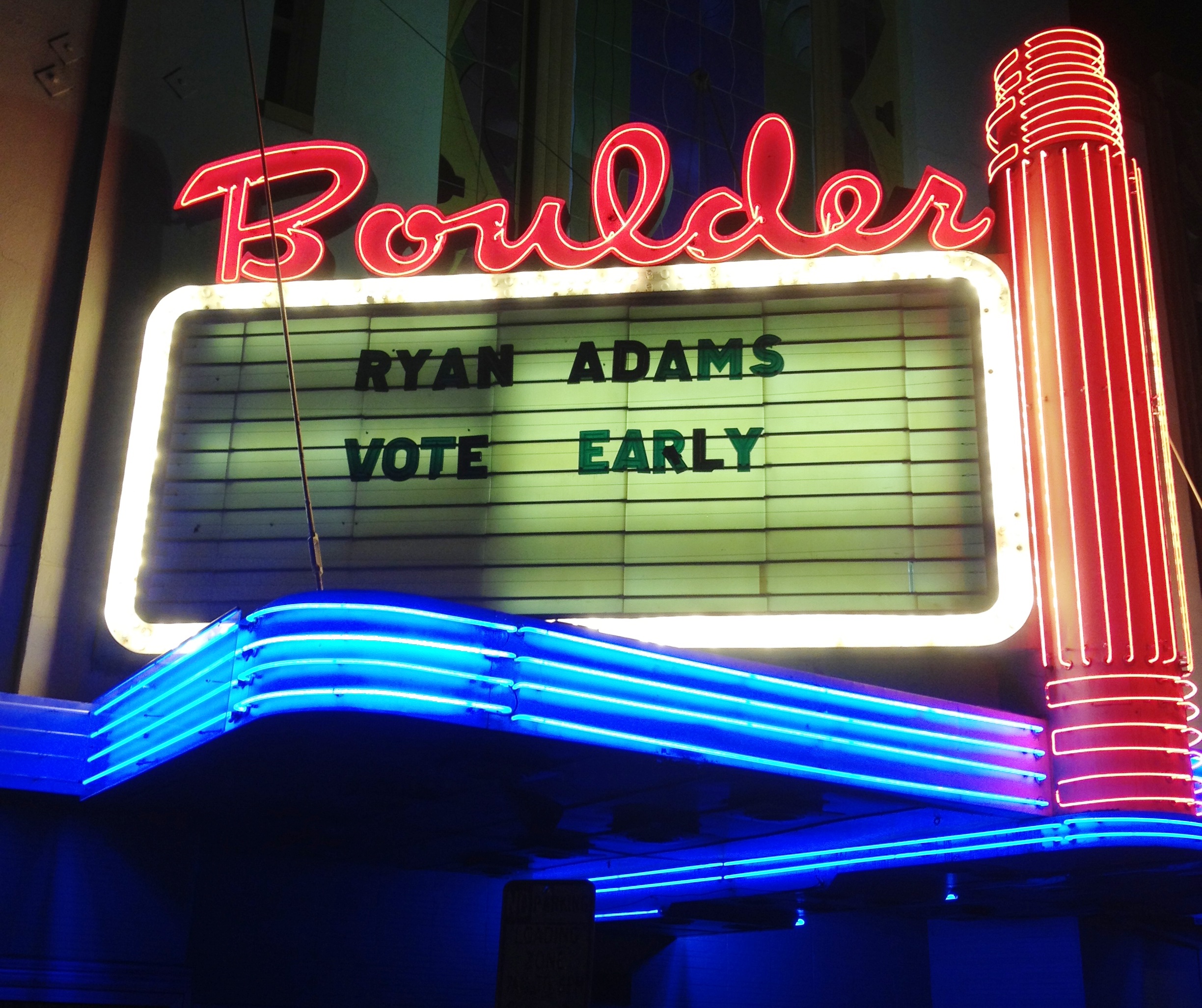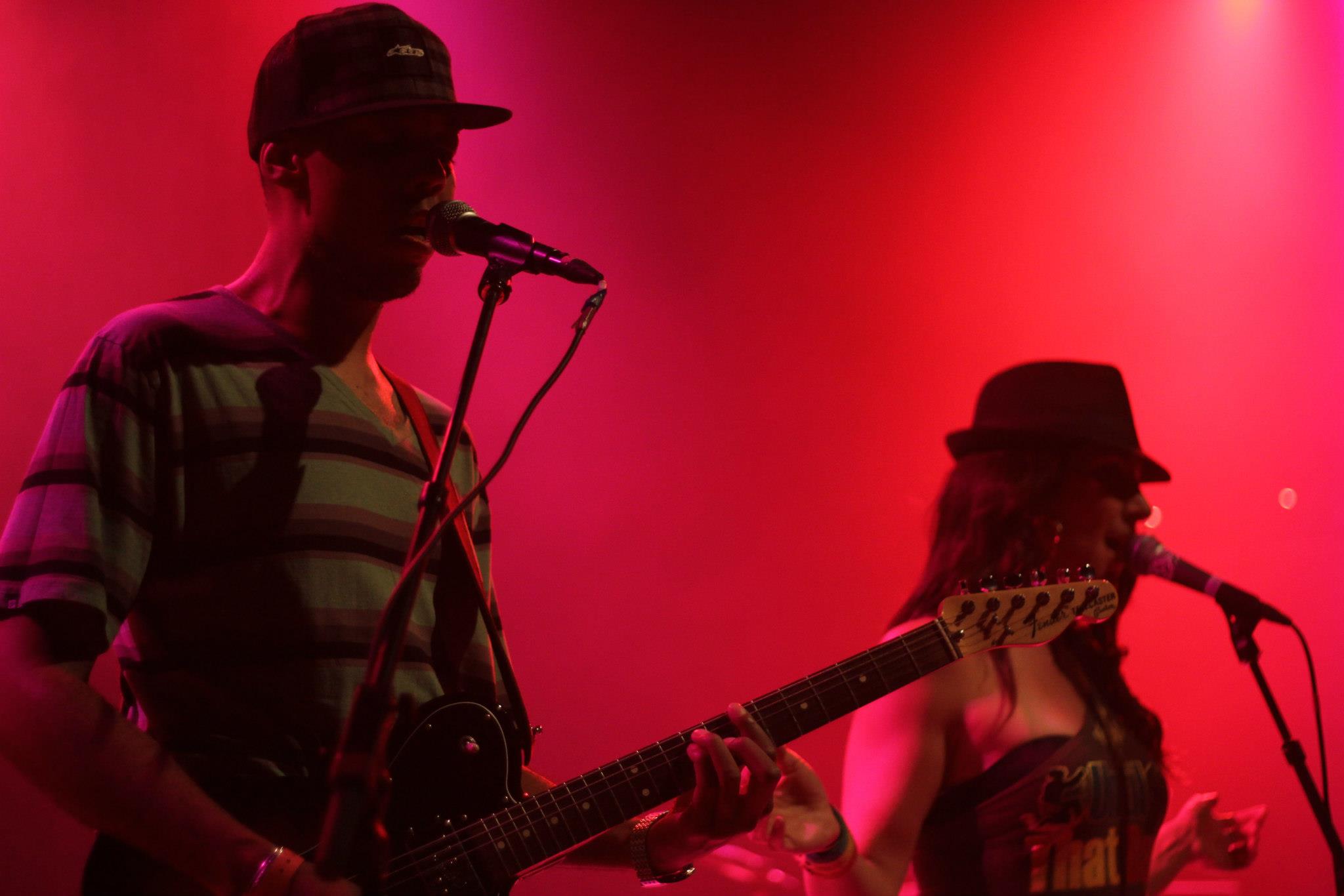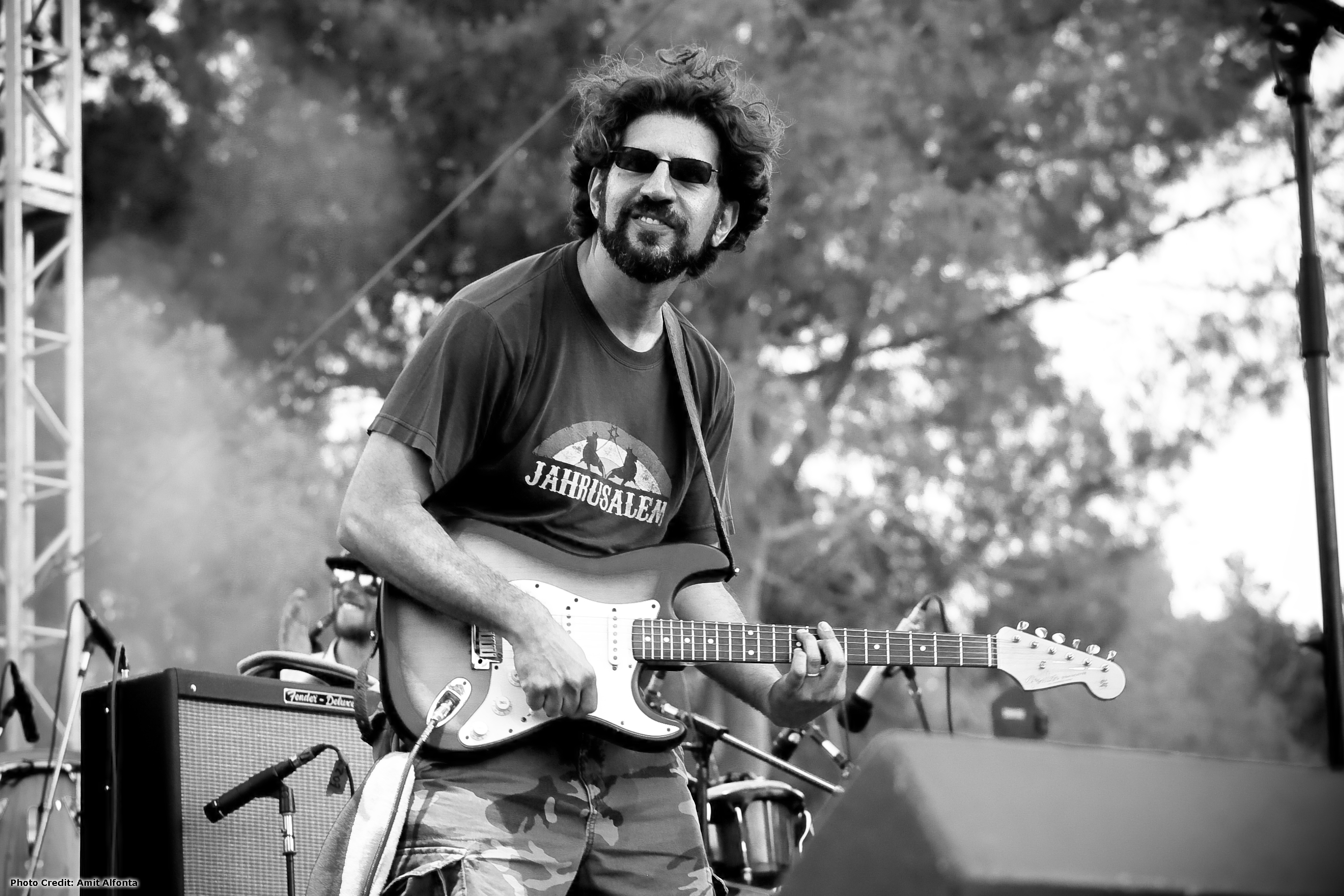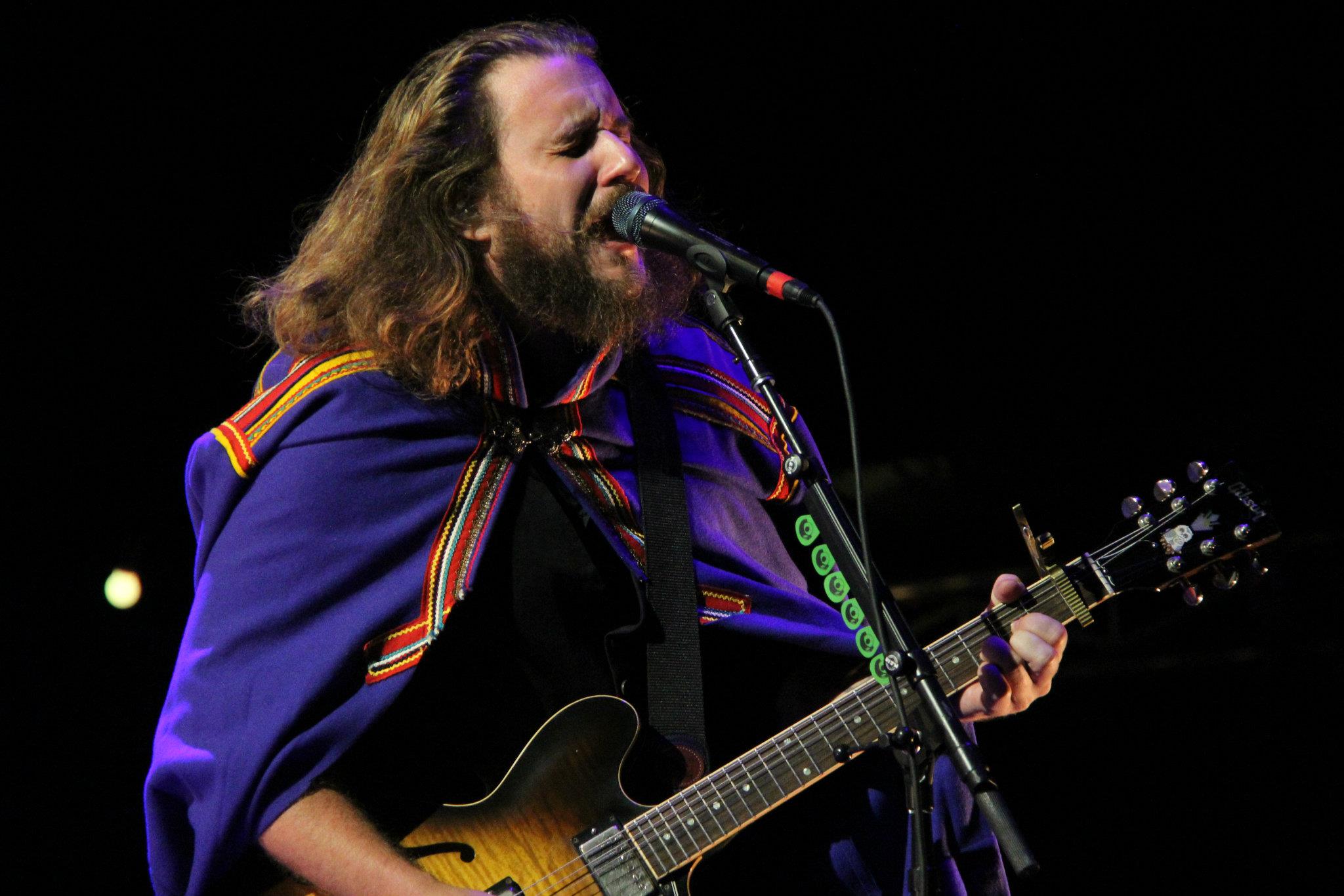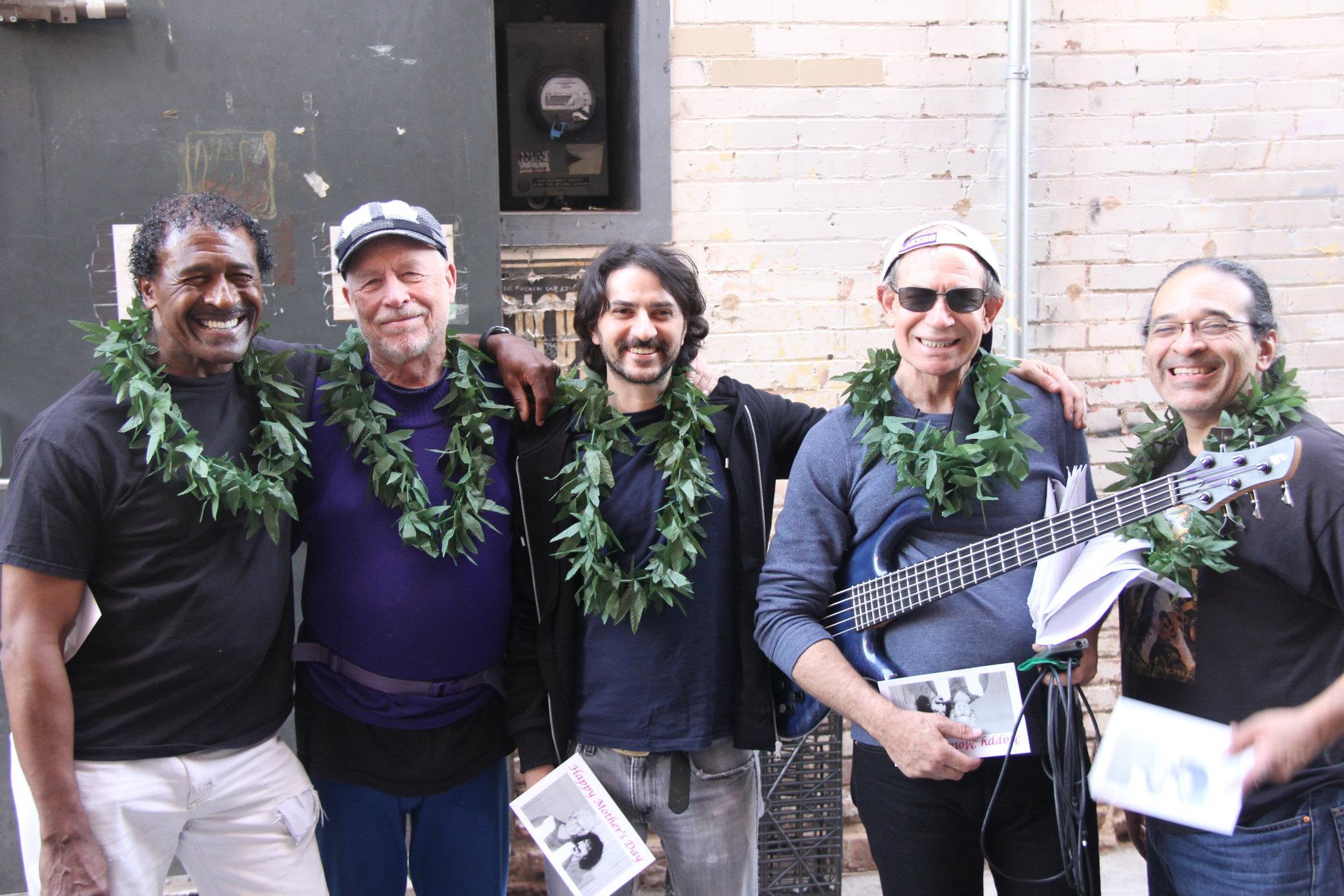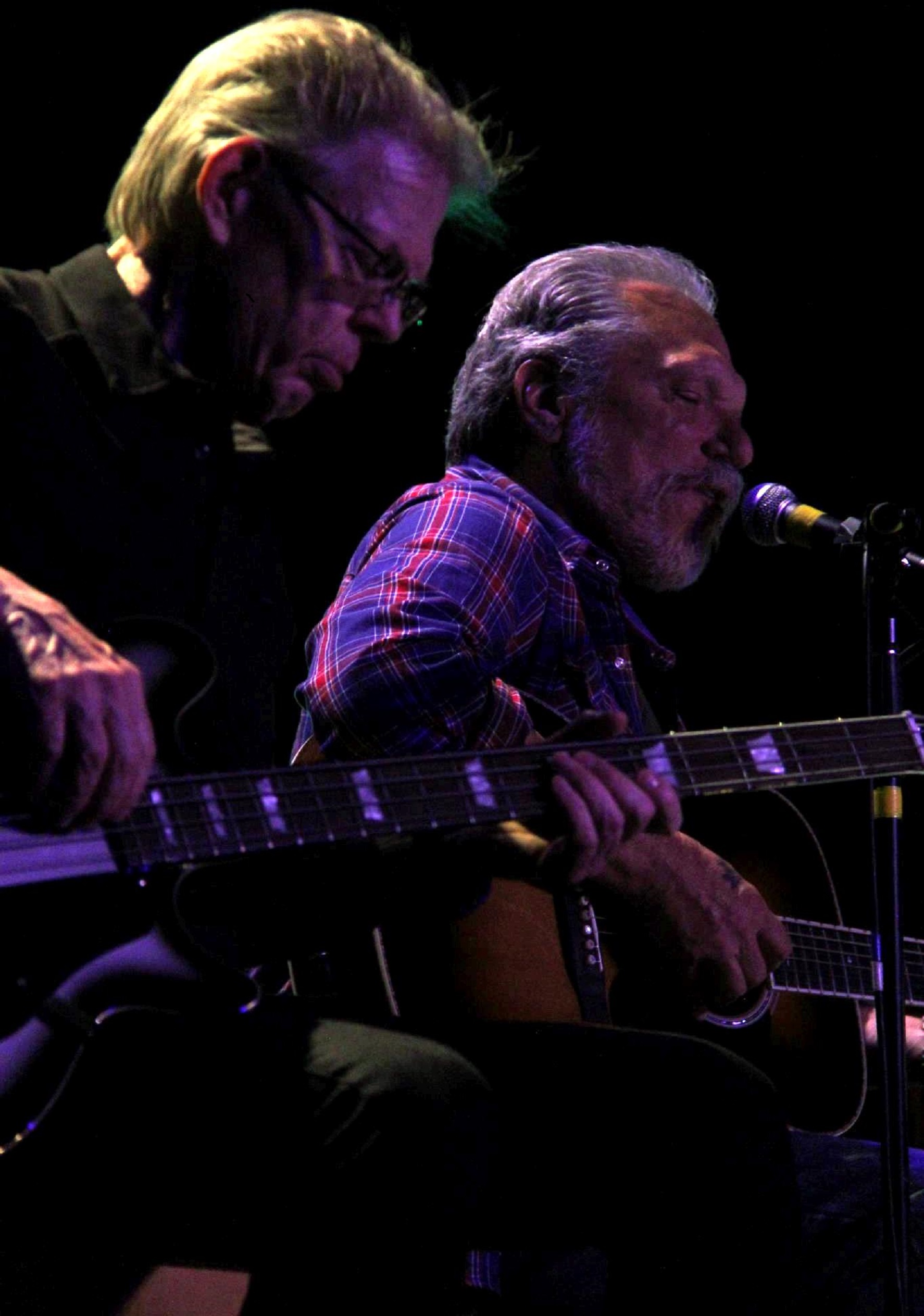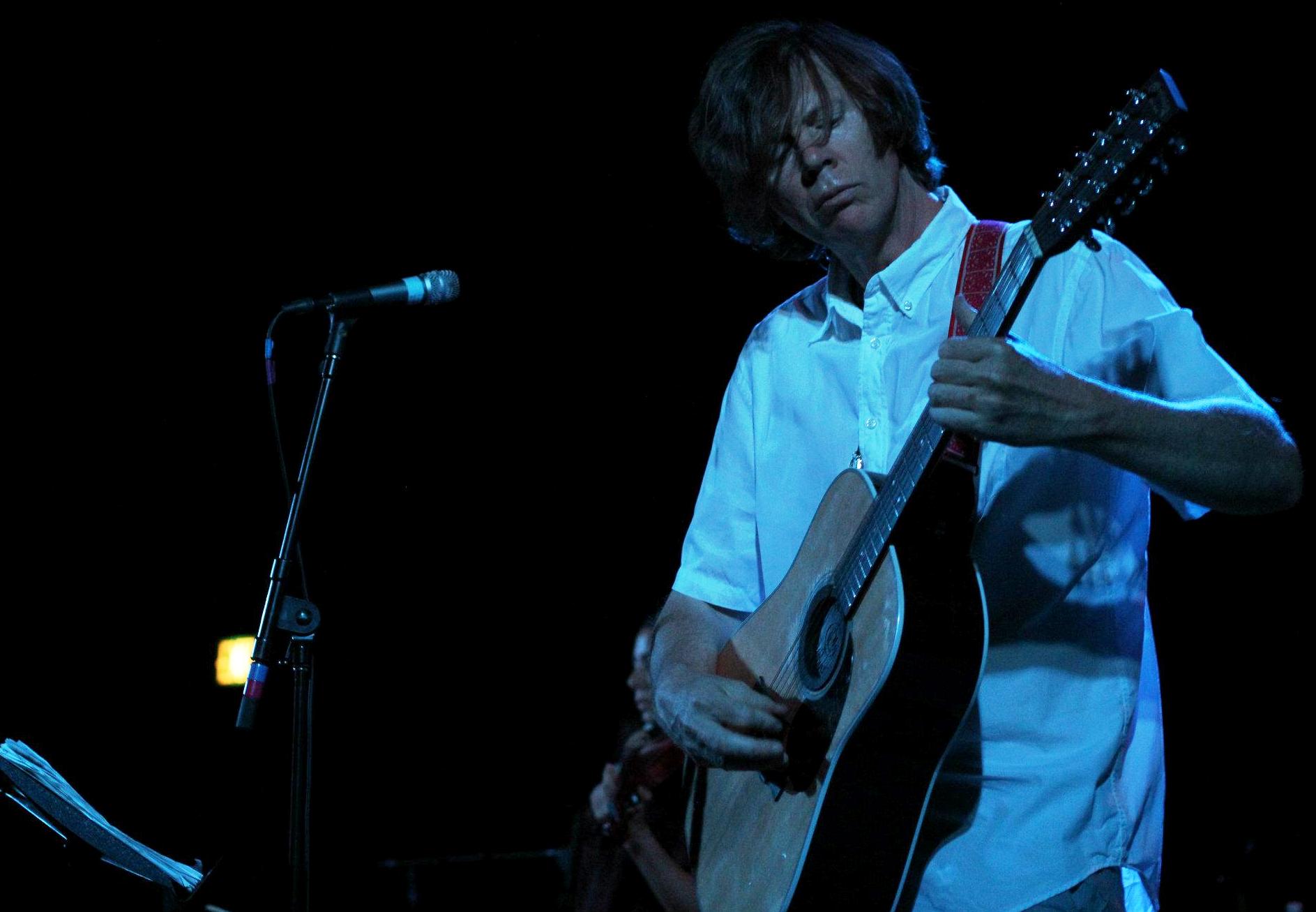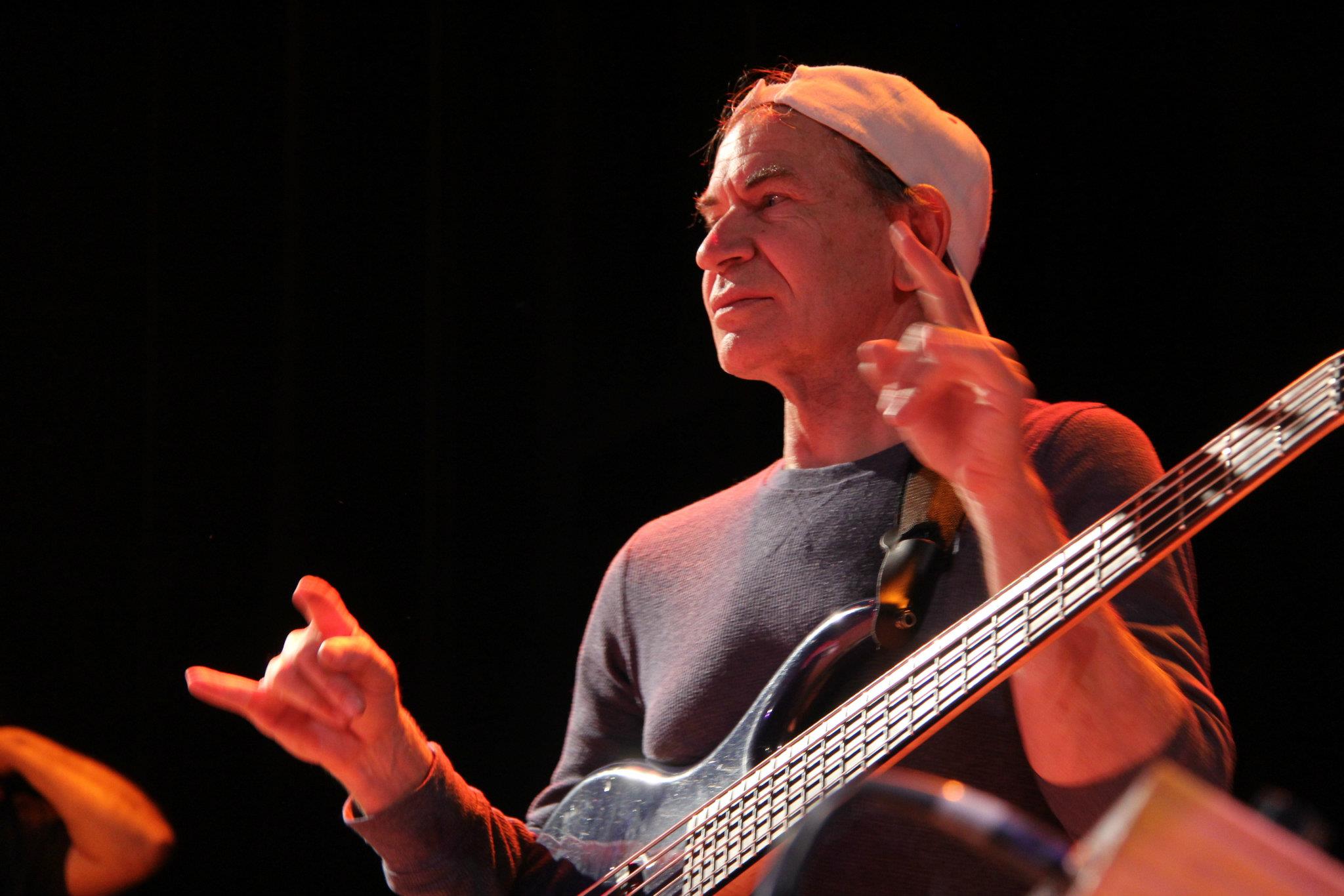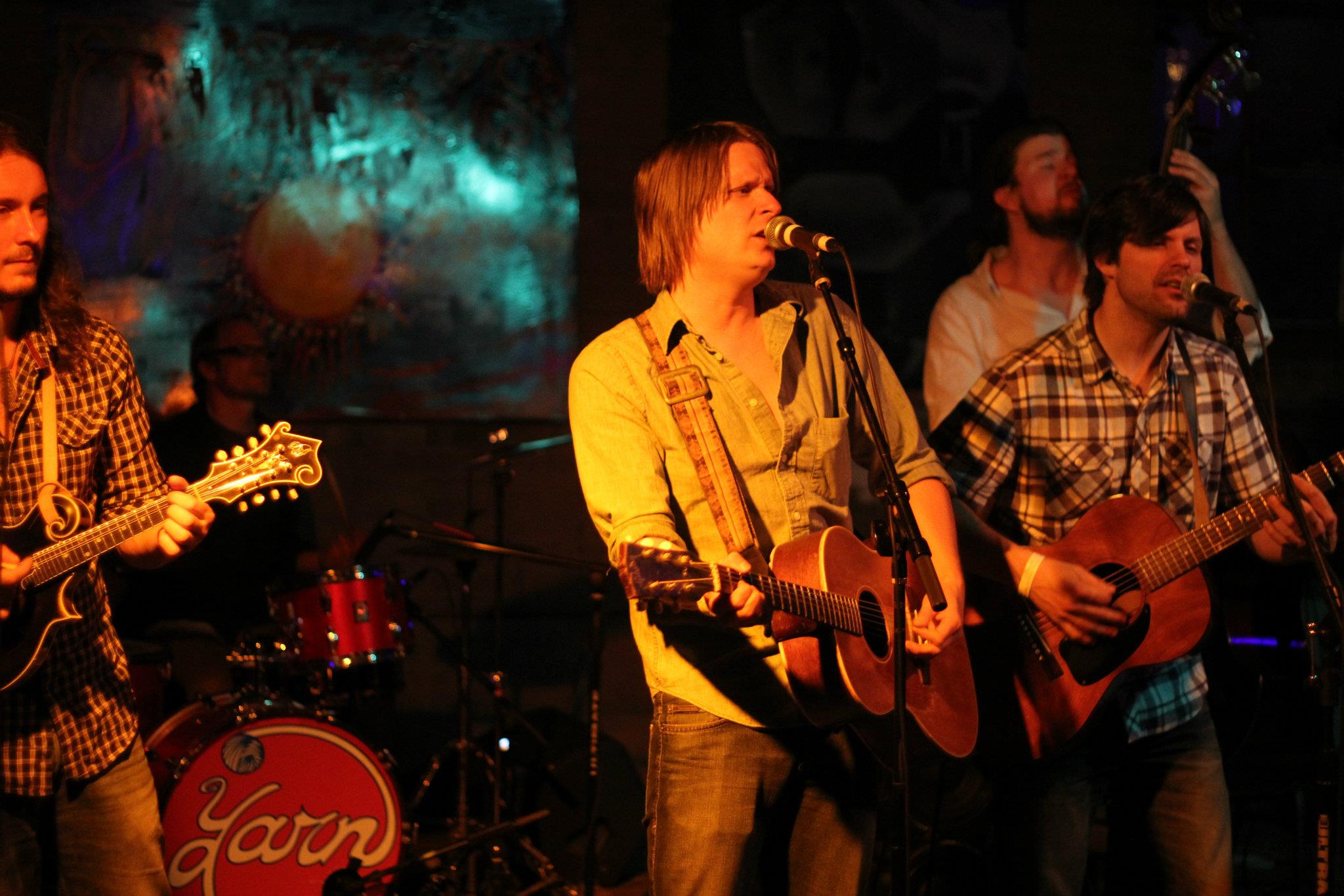Former Frank Zappa front-man Napoleon Murphy Brock discusses his beginnings with The Mothers, the musical and vocal dynamics within the group, a legacy kept alive, and real by The GrandMothers of Invention, currently on tour in the United States.
GW: This is Dave Papuga with the Grateful Web. Tonight I have the supreme pleasure of speaking with Napoleon Murphy Brock, former front man, and saxophone and flute player for Frank Zappa. In addition to playing on Zappa albums including Apostrophe, One Size Fits All, Roxy and Elsewhere, Sheik Yerbouti and Thing-Fish, Napoleon is a Grammy winner and a general music legend. How are you doing tonight, Napoleon?
NMB: Excellent! I’m excellent!
GW: Let’s take it back to how you got started playing music. How did it all begin?
NMB: Well, it actually began when I was in church with my grandparents. They got me up to sing in church when I was five, and a bunch of women in the front row started crying; and so I started crying too, because I thought I did something wrong. Then my grandmother said, “naw, they was just feeling the spirit, son.”
And I said, “oh, I thought I did something wrong.” (laughter)
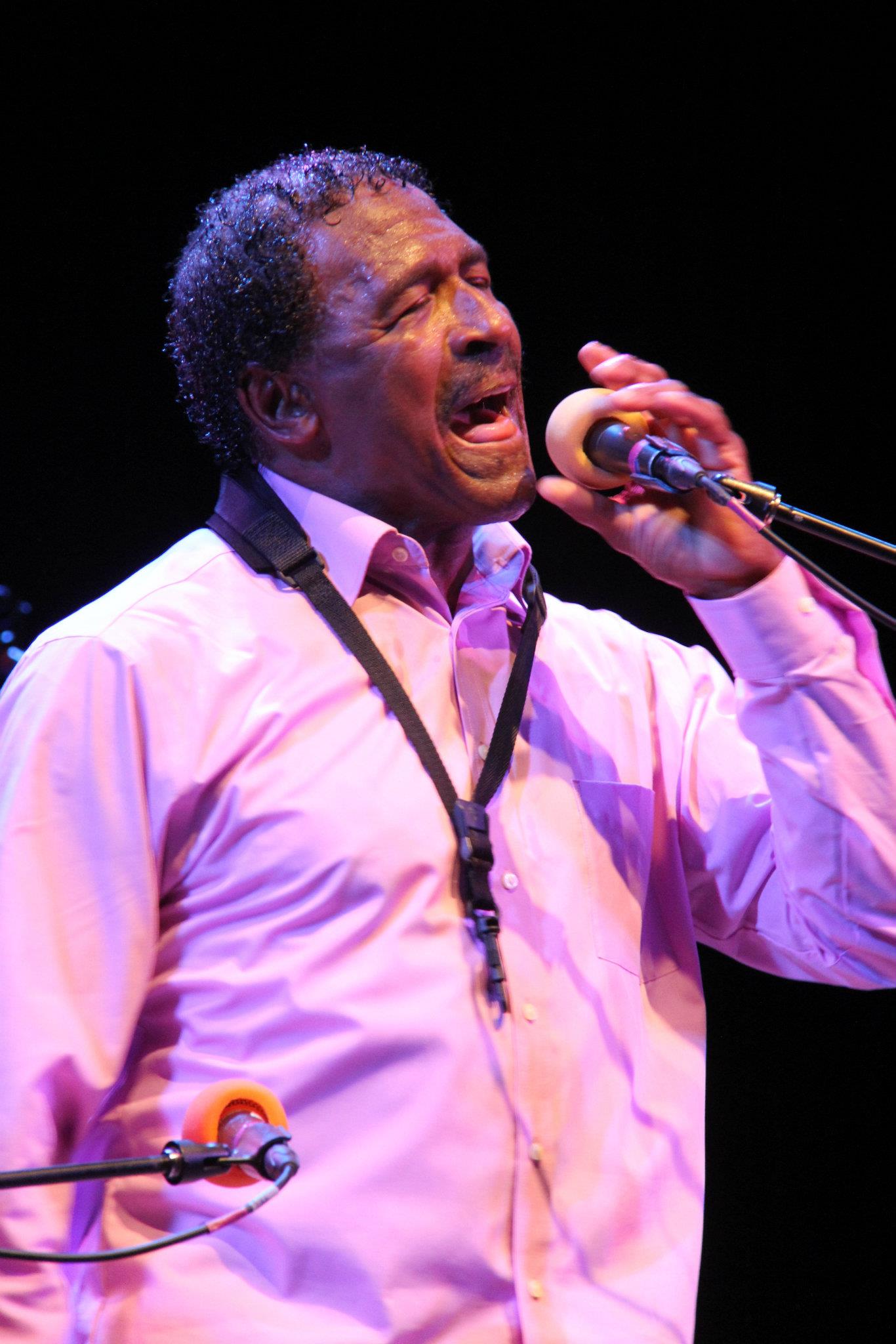 Napoleon Murphy Brock
Napoleon Murphy Brock
That’s how it started, and that’s when I…I kind of recognized that there was some magic there and I had actually been gifted, with something, and so I went through all of the different choirs, then I went into school and started singing in the school choirs, up into high school, then I started being in the local high school musicals, and our music teacher—a friend of his was a choreographer, and she had a dance studio and she used to come and do the choreography for our high school musicals and she also did the choreography an opera company. So, she went and told the people in the opera company…she said, “hey, you’ve got to come and see this production, this high school production. They’ve got this one kid in there who sings his ass off, but more than that—he’s a ham. He’s always smiling and happy for some reason.” And that’s because I love music; it was my world, it was freedom. It was a place that I recognized, that was part of me. The opera company came to one of our high school productions and hired me right there on the spot, came to me and said “we want you to come work with us at the opera company,” and I said “that’s not possible because I work at night. I live with my grandparents and I work at night to take care of my part of the cost of going to high school and living.”
They said, “Well, how much are you making?” I told them and they said, “we’ll match that, just don’t tell anybody that we’re paying you.”
I said, “cool,” and so I started working for them and I worked for them until I graduated high school- which was two years in high school and two years in college that I worked for them. In total, I worked for them for four years, and that’s where I got most of my basic stage experience. Back in that day, we didn’t have those microphones that you hook on your head, and you can dance around. We had to sing without microphones and we had to project to the last row in the audience. And so I learned how to sing from my diaphragm; I learned how to sing and project my voice, and that was our training, right there. We did a lot of dancing…and basically, that was my training. I played in the high school marching band…I played saxophone and flute in the high school marching band and the high school concert band and I sang for the jazz band in high school. So that’s how I got my start.
GW: You seem like a really modest guy. The opera company offered you the position and you initially refused the offer and honored your prior commitment. I understand that was kind of the same thing that happened when you were approached by Frank Zappa in Hawaii.
NMB: Well it was, because the band that I had over in Hawaii…the contract that I had with this gentleman, it was a gentlemen’s’ agreement. We didn’t need a piece of paper, because we trusted each other.
Frank came to me and said, “hey, my name is Frank Zappa, and you’re my new lead vocalist,” and I went, like “uh…really?”
 Napoleon Murphy Brock
Napoleon Murphy Brock
I said, “okay, well, first-of-all, I don’t know who you are, I’ve never heard of you before; and perhaps you didn’t notice, but I already have a job…and you’re a musician?”
And he said “yeah,” and I asked “what do you play?” And he said “guitar.” I said “really? Interesting.”
I said, “and you have a band, right?” He said, “yeah.” I said, “Do you record?”
He said, “yeah.”
I said “do they play your music on the radio? Because I listen to all of the stations: classical, rock and roll, rhythm and blues, blues, doo-wop, country…I listen to everything and I’ve never heard your name before.”
He said, “Well, my music is a little controversial.”
I said, “really? Oh, okay, well, that’s probably why I’ve never heard of you before, but, the bottom line…”
He said, “Listen, have you ever been to Europe?”
I said, “no.”
He said, “well, listen, I’ll come over on Monday, and I’ll teach you everything you need to know to go on tour with me in Europe.”
And I said, “really? Well, no, my answer is still ‘no’ because, bottom-line, I don’t know who you are, and why am I going to go some place with someone that I’ve never met before to do music that I’ve never heard before, that I know nothing about? Plus, I have a contract here.”
He said, “We’ll buy the contract.”
I said, “You can’t buy the contract because it’s a verbal agreement, and my word is my bond. I told the band we’re going to be here for three months—therefore, we’re going to be here for three months…I told the club owner we’re going to be here for three months--so therefore, we’re going to be here for three months.” I said, “I appreciate the compliment, but with all due respect- I don’t know who you are. I wish you a lot of luck, and thank you very much for the compliment.” Before I left, I said, “Well, by the way, who’s in your band?”
He said, “George Duke, Jean-Luc Ponty.”
I said, “whoa, stop, wait a minute. The French jazz-violinist Jean-Luc Ponty? And the jazz keyboard player who used to play with Cannonball Adderley, George Duke? That keyboard player? They’re in your band?”
He said, “yeah.”
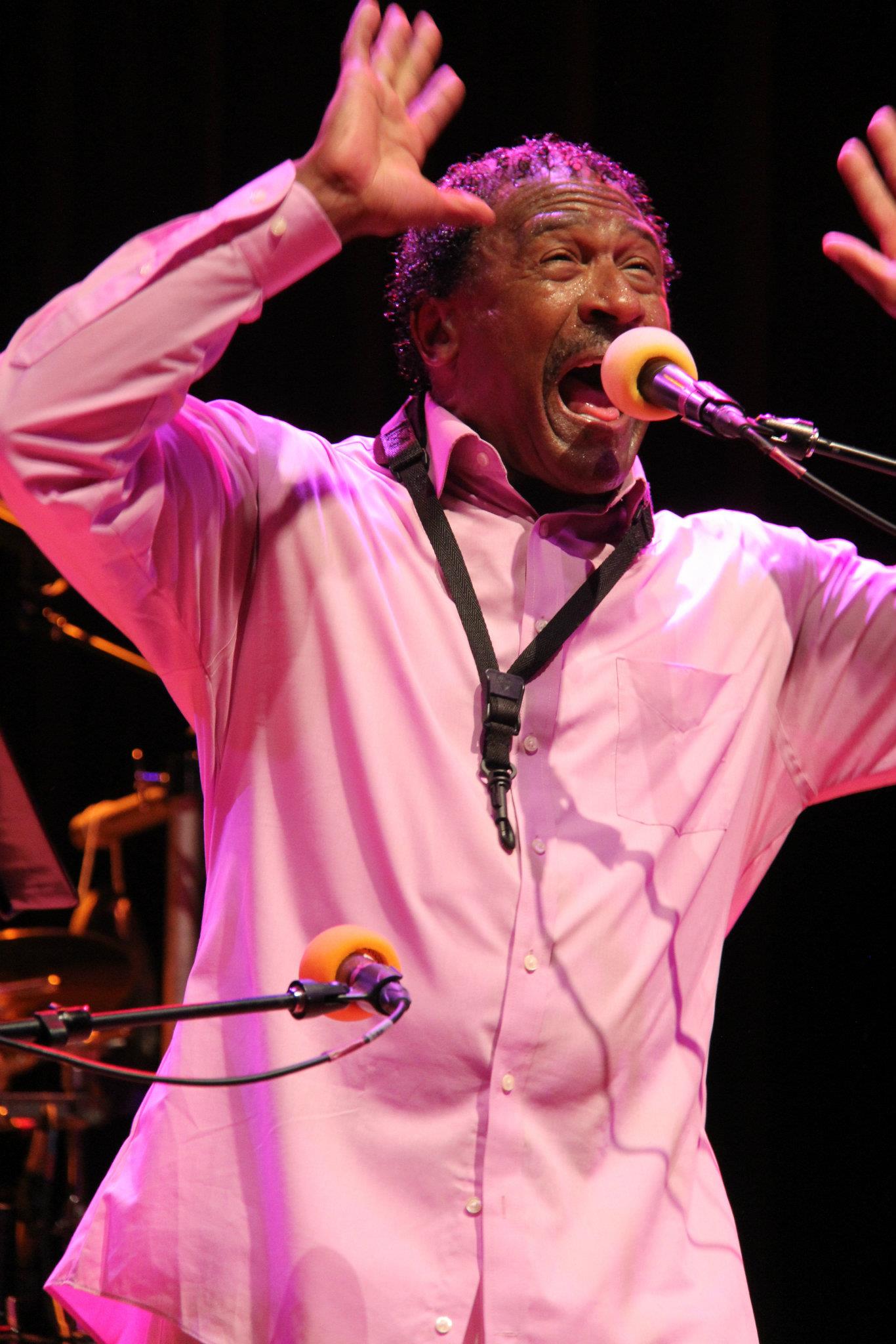 Napoleon Murphy Brock
Napoleon Murphy Brock
I said, “Well, damn, you must be good. They’re the best. Why haven’t I heard of you? I have everything they’ve recorded. George Duke is my idol. We used to put make up on to look old so we could go to after-hours clubs to watch George Duke, my musician friends and me. So that’s really weird that I’ve never heard of your name before.”
He said, “Would you do it?”
I said, “No, I still won’t do it. I’m not going to break my contract or go back on my word to these guys or to the club owner, but when do you get back?”
He said, “I’ll be back in about three months.”
I said, “Here’s my card, give me a call, and I’ll come down and check you out, I’d like to hear what you sound like.”
He said, “I’ll call you when I get back, you come and listen to us. You don’t have to sing or anything. If you like the band, you’re in.”
I said, “That stuff about you teaching me everything I need to know in one day, to play with George Duke and Jean-Luc Ponty- nix on that stuff. There ain’t no way in the world you could teach me anything in one day where I’m going to go embarrass myself in front of George Duke and Jean-Luc Ponty. I know these guys- these guys are monsters!” That’s how that happened.
GW: You’re featured on material from ’74-’84. When did you go to that first rehearsal?
NMB: It was the end of September. They weren’t there (Europe) as long as they thought they were going to be. They were only there for about five weeks. I went down there in September; we started with rehearsals in September and October. Chester Thompson came in the day after I got there, and we were touring by the end of the year. In November we were on tour. Two drummers—Chester Thompson and Ralph Humphrey were playing drums in the band; and Ruth Underwood. Jean-Luc had gotten a recording contract about then, and a deal with a record company, so he quit then. Ralph Humphrey was there, Ruth Underwood was there, Tom Fowler, Bruce Fowler, George Duke, Frank, and myself. It was great. History will attest, if you get and bootlegs or recording from that period.
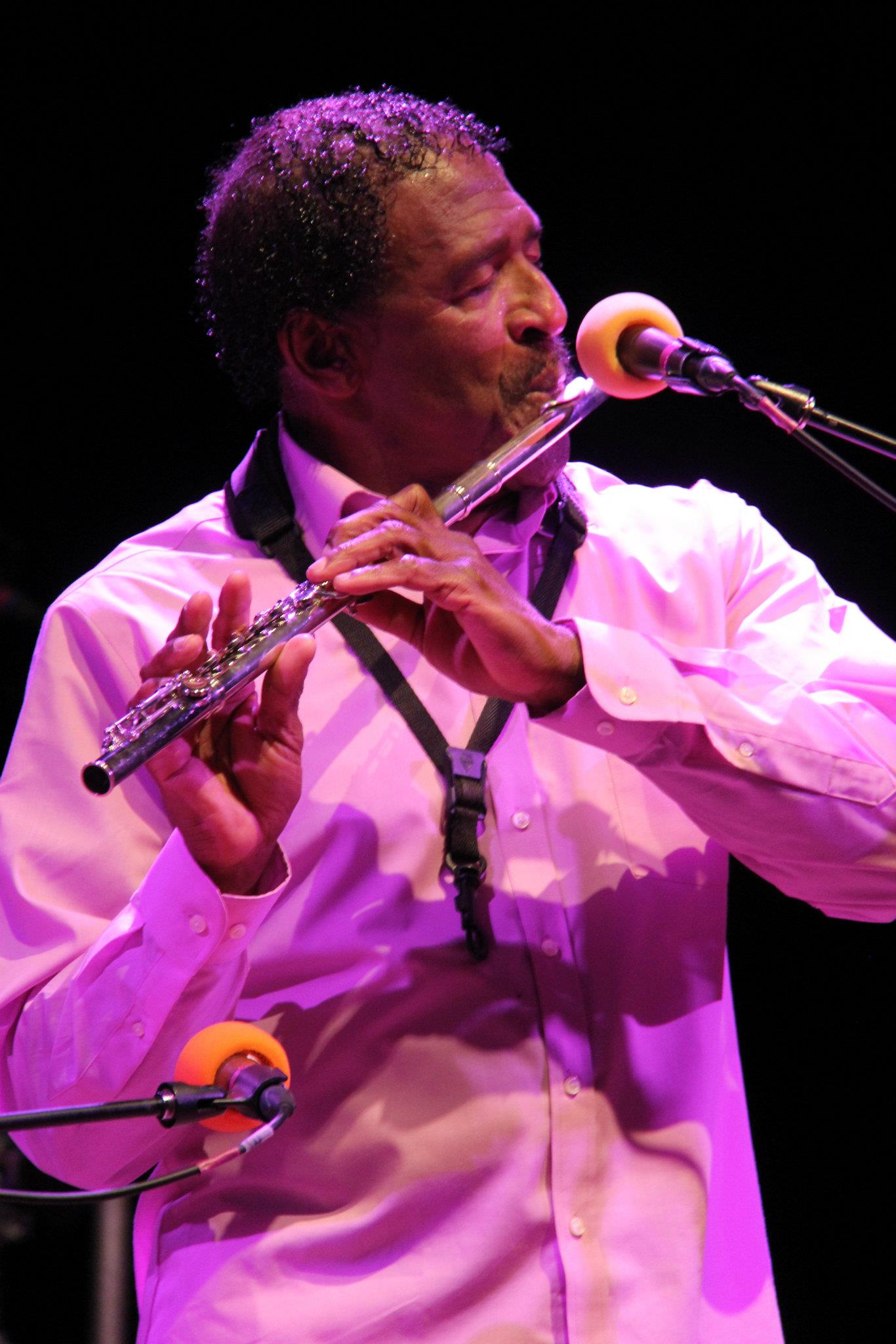 Napoleon Murphy Brock | Boulder Theater
Napoleon Murphy Brock | Boulder Theater
Frank took Chester and I up to his vault and gave us a chart to every piece of music that they did and he told me, “Listen, I don’t want you to change anything. I want you to do exactly what I saw you doing in Hawaii, as far as what you do on stage…I just want you to do it with my music.”
I said, “Well, that’s easy…it’s easy to be myself.” But then he gave us those charts and Chester and I stayed up all night going over those charts going “What the fuck is this? (laughter) Why does he put so many notes in each measure? What’s up with that? What’s he trying to do, see how many he can get in there?” But once we started to learn the music, and learn the style of music, then it made all of the sense in the world. We realized that we were on the cutting edge of making history playing music, performing music and recording music that was so far ahead of it’s time, that I’m not sure that time has caught up with it yet.
GW: Exactly. Since then, what’s come out that has been of that musical caliber with the improv and the chemistry between musicians…nothing has seemed to have been able to touch that. You’re right; history hasn’t caught up with it yet.
NMB: One of my big questions to myself was, “How does this guy know, just from watching me for a couple of hours with my band in Hawaii playing top 40 music—cover music—how does he know that I can play with George Duke and Jean-Luc Ponty and all these other conservatory musicians?” I learned in high school and in college, but I never could afford to go to a conservatory.
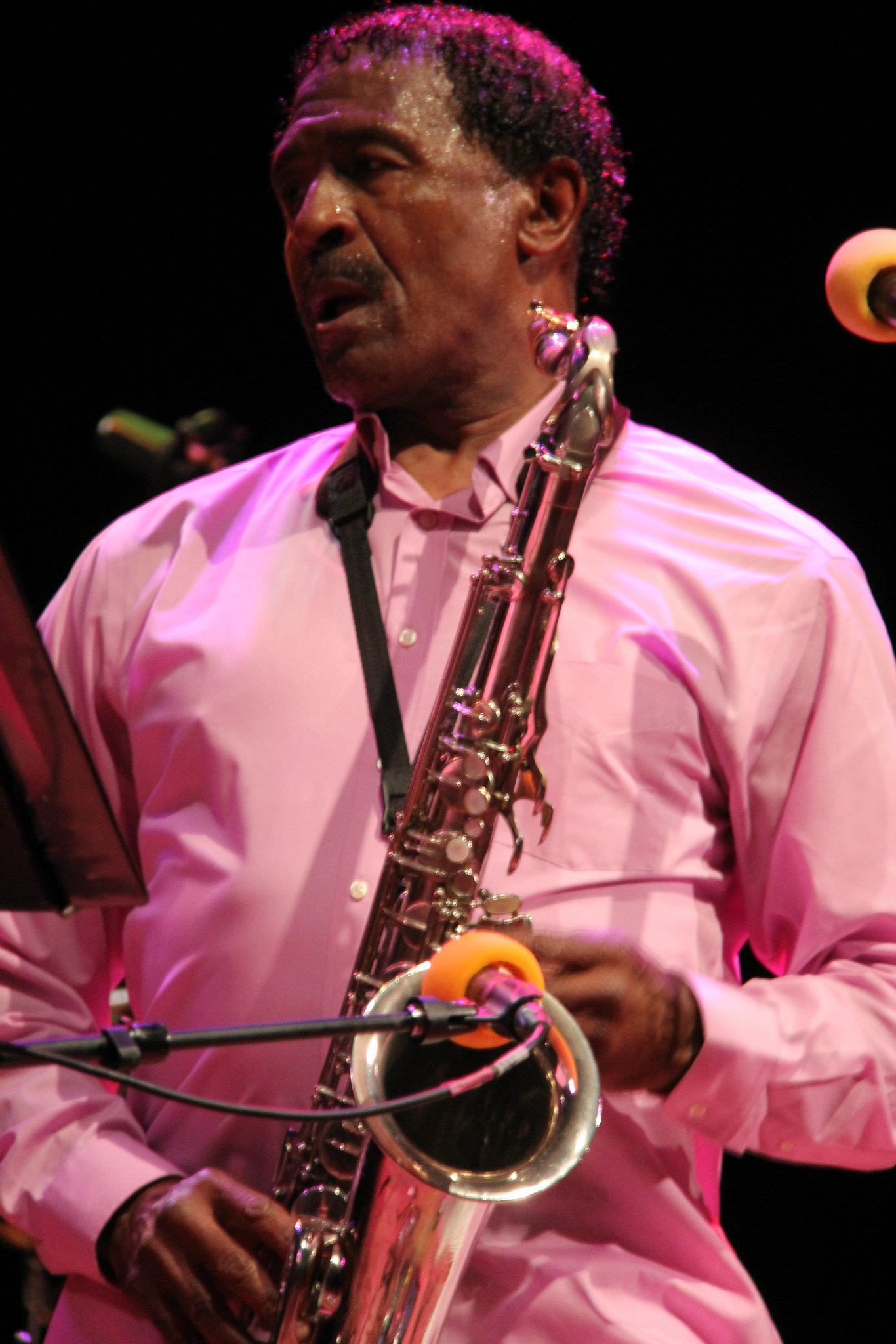 Napoleon Murphy Brock
Napoleon Murphy Brock
One of the first things that I recognized when I first went to hear them play…they played five or six songs without stopping, and I recognized right then, I said, “this is rock opera, but it’s even above rock opera because he’s including jazz, classical, rhythm and blues, doo-wop, country…he was taking every genre of music and composing music, and he’s using two/four chords as opposed to three/five/seven. He was using two/four—so that changes the scale…that changes all of the notes in the scale. I’m like, “wow, what an imagination! What a thing to do!” It’s like playing classical music because usually in classical music, that’s the only place where they use two/four chords, you know what I’m saying? He was using it in all of these other stylish ways, but—bottom-line—the choreography, and all of the other little things that he was adding- it was basically a rock opera, a Broadway musical. But how did he recognize that I came from there by watching me in Hawaii? The things that I did with Zappa on stage—I was doing, basically, those same moves, with that same enthusiasm and that same energy when I played cover music. So then I broke it down and said, “Okay, I see.” But I was just having a good time and expressing myself, and really getting into what I was doing, because if I’m not having fun, I’m not going to do it, because I don’t like to work. It should be fun, and it was fun! I had a hard time figuring out how he knew. Then the more we started working together, the more that I found out that he and I were very much alike in many ways, you know what I’m saying? One of his favorite things to say when someone made a profound statement was “Hello!” And I used to say that all of the time too. “Hello!” We had a chemistry and we developed a chemistry and he actually trusted me. He put me out there on the first show. He said, “Just go.” He started a groove, and said “just go.” And, I said, “just go and do what?” He said, “Just do what you do.” He saw me in Hawaii and he could tell that I was doing a lot of ad-libbing, but I would do it in sync with the composition, that would not take from the composition, it would only add to the composition and what the composition was trying to present. He recognized that, and this is why he allowed me to really stretch out in his compositions and ad-lib stuff like “Dummy Up” and “Pygmy Twilight” and “Room Service” and all of that stuff. Most of that was ad-lib. We did that stuff every night, but it was never the same. We were always thinking creatively about what we would do and we would play off of each other’s words. The music was ahead of its time. This is why we’re still doing it now. There are a lot of cover bands playing it, but they’re not playing it right. We’re going to make sure that the quality and the integrity of the music stays the same and that it remains there, so people could see how it’s really supposed to be done. I’m a much better singer now than I was then because I took voice lessons and I’ve practiced. I practice all of the time. When I’m not gigging, on the road or something, I go to this club in San Jose and I play four hours-- non-stop--playing sax, flute and singing. Every Friday or Saturday night, we’ve play four hours and we don’t take a break. It just keeps my chops really tight; it strengthens my voice, makes it stronger and stronger.
GW: The exchange between you and Zappa and the other guys was simply unmatched. He gave you that freedom to improvise right off the bat?
NMB: Yeah, and he knew that Georges voice and my voice would match. The guy had some genius parts about him; I later found out, that blew me away. I told him, I said, “Dude, the only thing I knew about you was that I saw your picture on a poster, sitting on a toilet in a record store, flipping the bird. If that’s your resume or your endorsement, what do you want with me? (laughter) I ain’t into that, whatever that is, I’m not into that.” But I came to find out later that he didn’t stage that; someone opened the door and took a picture of him, and that’s why he flipped the bird.
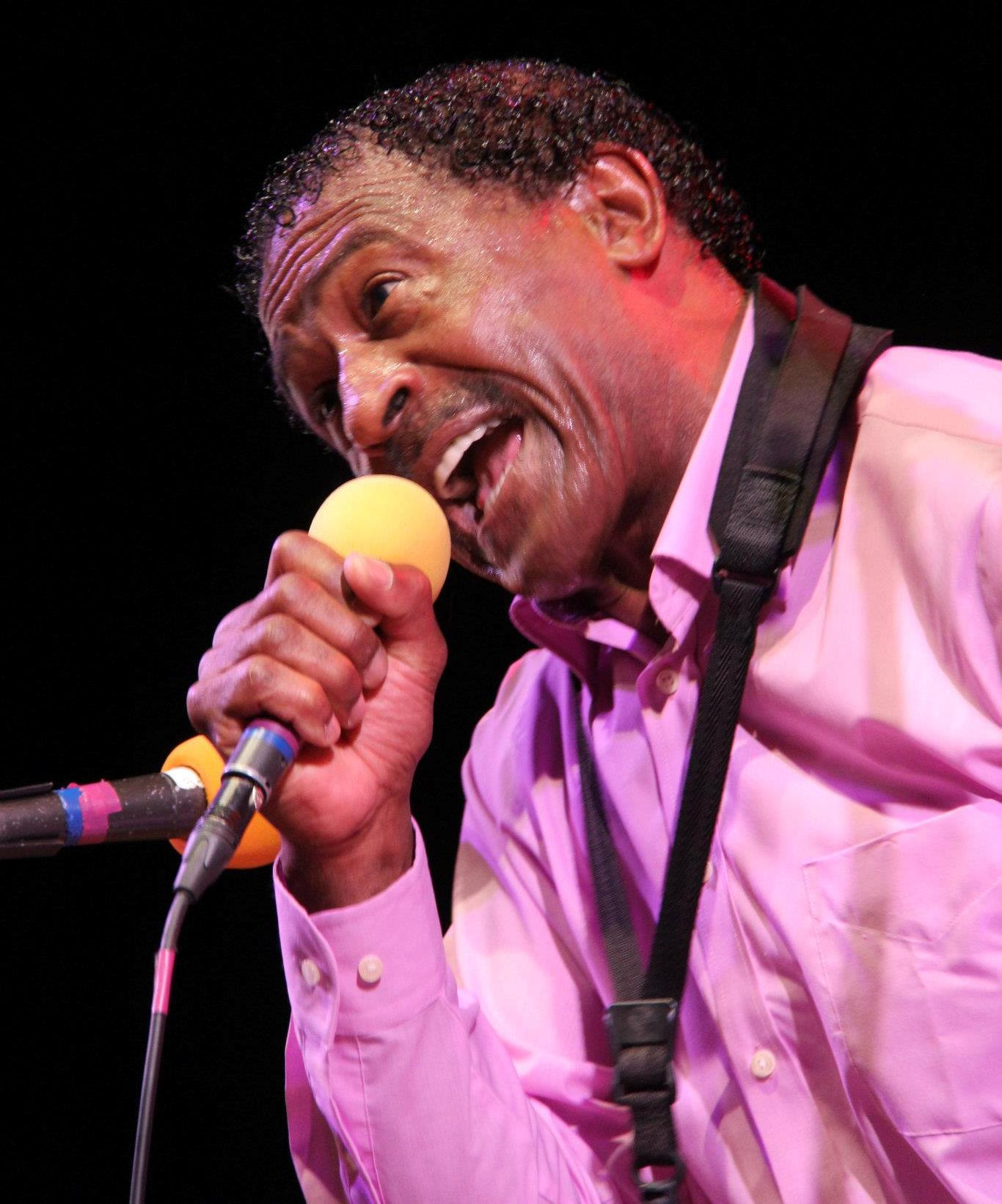 Napoleon Murphy Brock
Napoleon Murphy Brock
GW: That’s definitely a whole new insight. I have a Buffalo, New York, 1974 recording and it’s along the lines of the Helsinki stuff, you and George doing the “Tush, Tush, Tush” intro, and you guys are talking about some snowstorm and then you start breaking Ruth’s balls; listening to it in the headphones and having one of you guys right and one of you guys left (ear)—it’s just fucking genius.
NMB: Yeah…it was. Thank you very much. He allowed us to do that, and he recognized that that was in me—because it was in him, and he had someone to banter with, that he knew was going to always maintain the integrity of the composition, and not take it away to other places where it shouldn’t go. Because I was the leader of my own band; I did all of the arrangements in my band, because I wanted the integrity of the music and the quality of the music to be at a certain level, and he recognized that. As a matter of fact, I don’t know if you know, but I just released a CD of that night, because I was recording that night. I went back into my storage and I found the CD of the night that Frank came in.
GW: Communication Plus? That was the name of that group?
NMB: Yeah. I just released it. It’s called “This is What Frank Zappa Heard: Communication Plus: Live at the Red Noodle.” You’ll be able to hear exactly what he heard, and you will be able, from listening to this, figure out why he wrote songs like “Pygmy Twilight,” “Florentine Pogen”…why he wrote songs like this for me to sing.
GW: Those songs were written for you…
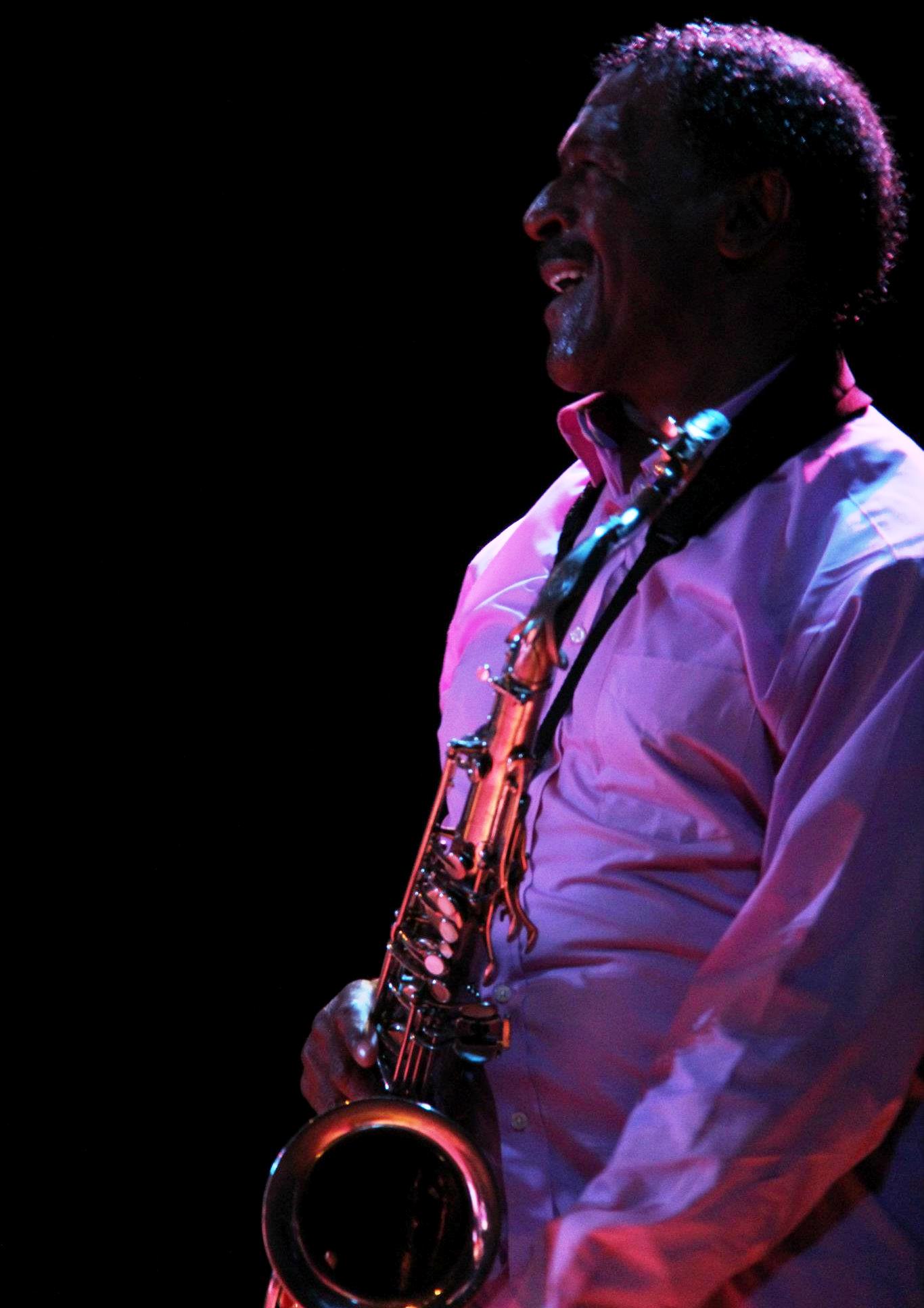 Napoleon Murphy Brock
Napoleon Murphy Brock
NMB: They were written for me, and you don’t hear many people trying to sing them either, because it’s gymnastics, vocal gymnastics. All of the information, he used to say to himself, “I can compose this song, and this person can do this song and bring it to life”…the information that he got for that idea is all on this CD, because this is the night that he came in there. This is a live recording of when Frank Zappa met Napoleon Murphy Brock. I took it to Germany; I recorded it on a Teac four-track reel to reel, and I had it transferred to Pro-Tools and I took it to Germany to this guy at Penglen Engineering, and what he does…he does restoration of old tapes. He takes all of the hiss out, takes out all of the noise and he makes it sound digital, but he didn’t remove the analog sound. So it still has that 70s analog sound…and stereo, full stereo. Keyboards on one side, guitar on the other side, sax in the middle. Everything is panned in stereo.
GW: Napoleon, I was wondering about the Zappanale Festival in Germany, and the Beefheart festival in France…why don’t we get festivals like that here in the states?
NMB: Well, as you know, people over here are a little bit weird. That’s why we haven’t been touring over here. This is why now is our first tour in a long time. Because the people over here are always ready…”what’s new today, what’s new tomorrow?” They always change all of the musical programs. The local governments, when they want to make cuts, the first thing that they cut are the arts. So people over here really aren’t educated, musically, like the people in Europe. The people in Europe…every child over there has to learn a musical instrument when he goes to school, whether he will become a musician or not. He’ll probably turn into an engineer or a construction worker or a mathematician or an accountant, but they all have to take music and they all have to learn an instrument because it’s a part of their culture. It’s really not an embedded part of our culture over here. Even though most of the music that is played around the world, like jazz and blues, and rhythm and blues- it was all created here. Over in Europe, they put a higher value on it, they put a higher value on all of that music; and that’s the difference. So we go over there and we sell-out, every time we play, because people come out because they know that the quality of the music is going to be at such a high level that they are not going to get ripped off and they are going to appreciate it, and it’s not going to be rap, and it’s not going to be some repetition thing, it’s going to be quality music, that, like we said before, is still ahead of it’s time. They understand the difference between quality music and noise.
GW: It’s kind of a shame- the mentality towards music over here in the states.
NMB: It is. Fortunately what’s happening now, is that all of these bands like KISS, Genesis, and us, is that we’re all starting to tour again, because the music that is coming out nowadays is finally being recognized as not having a very high level of quality to it…or creativity. It’s more repetitious. We recognize that, the promoters recognize that, and this is why they’re going back to the old-school sound.
GW: It’s about time.
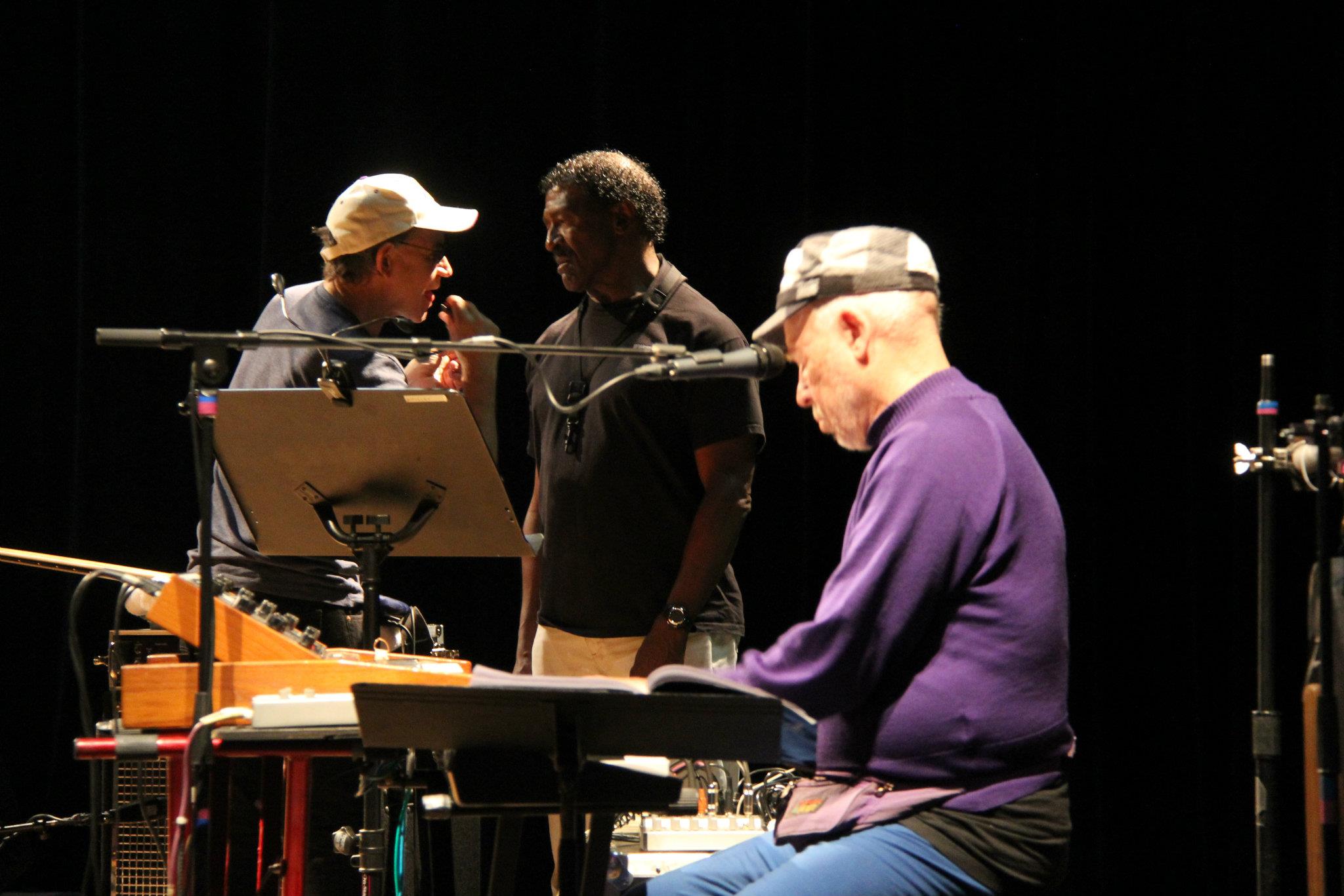
NMB: Yeah, that’s what I’m saying too—it’s about time. We’re ready. We’ve got Tom Fowler—Tom Fowler was just with Ray Charles for the last 35 years. He was the bass player in Zappa’s band when I got there. This guy has all of the Zappa stuff and 35 years of Ray Charles under his belt. We have so many options when we play solos and stuff, me and the guitar player, or Don Preston, we just don’t know where to go first. Because Tom Fowler’s layin’ down all this shit, man. We’re going, like, “damn!” He’s playing all the bass parts, all the roots, but all of the relatives, too! All of the different styles and feelings that he’s playing: the technical stuff that he got from Zappa, but he’s also playing the real moody, feely stuff that he got from Ray Charles. So we’re in the best of the worlds that we could ever be in.
GW: I’m excited for May 13th at the Boulder Theater.
NMB: Oh, it’s going to be incredible, man. We’ve been practicing. We just had three days of rehearsal, eight hours a day, each day. We’re just blown away; we had to stop ourselves, because we wouldn’t do anything else. We can’t wait to get out there and blow everybody’s mind.
GW: We can’t wait to have you. I’ve seen some of the other reincarnations: Project Objekt and Dweezil with Zappa Plays Zappa over the years, but I’m really excited to see this line-up. So, with the Grandmothers, it’s you, Don Preston, Tom Fowler and Miroslav Tadic?
NMB: Miroslav Tadic. This dude plays with classical orchestras all over the world. Flamenco guitar and classical guitar.
GW: And he’s a young guy?
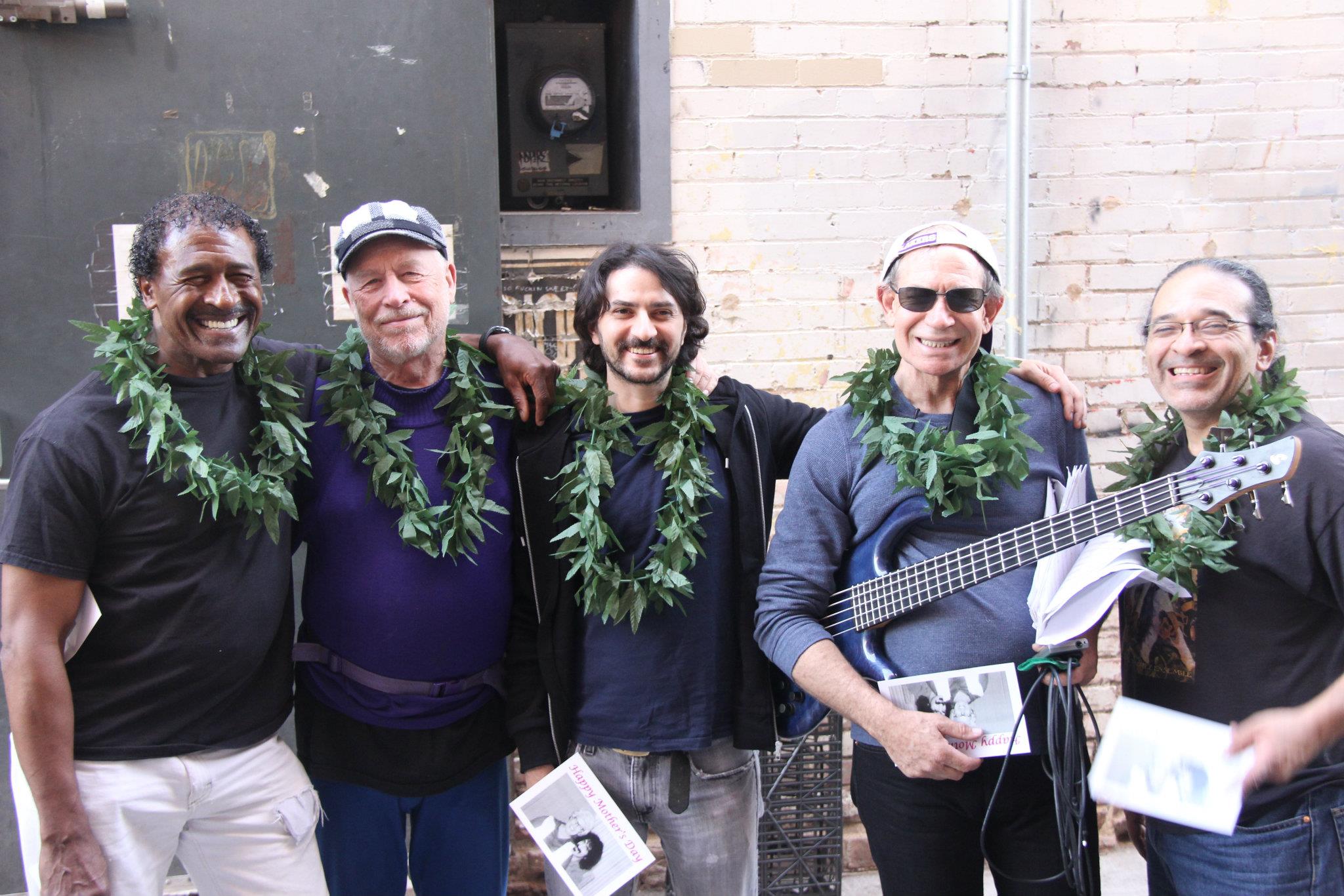
NMB: Yeah! We got another guy; we’ve got two guitar players because Miroslav can’t always make it because a lot of times, he’s somewhere playing with a classical orchestra in Austria, Croatia, Germany or Italy…he’s always some place playing with a classical orchestra and he does a jazz thing or flamenco thing or acoustic guitar thing, folk music--with another guy from his country…he’s from Croatia and they play these concerts too, like jazz clubs where they are just incredible. Playing Zappa stuff—you won’t believe this guy! He’s a monster, man!
GW: Nice. We expect nothing less from you guys.
NMB: Believe me, believe me. And the drummer—Chris Garcia—he goes to India and plays—and he’s just incredible, and he sings like Captain Beefheart. He can nail Captain Beefheart.
GW: So, what’s it like bringing the relatively new guys into the mix?
NMB: Both of them—Chris Garcia and Miroslav Tadic—they both teach at the Los Angeles Conservatory of Music. Chris Garcia, the drummer, he used to take marimba lessons from Ruth Underwood.
GW: No shit?
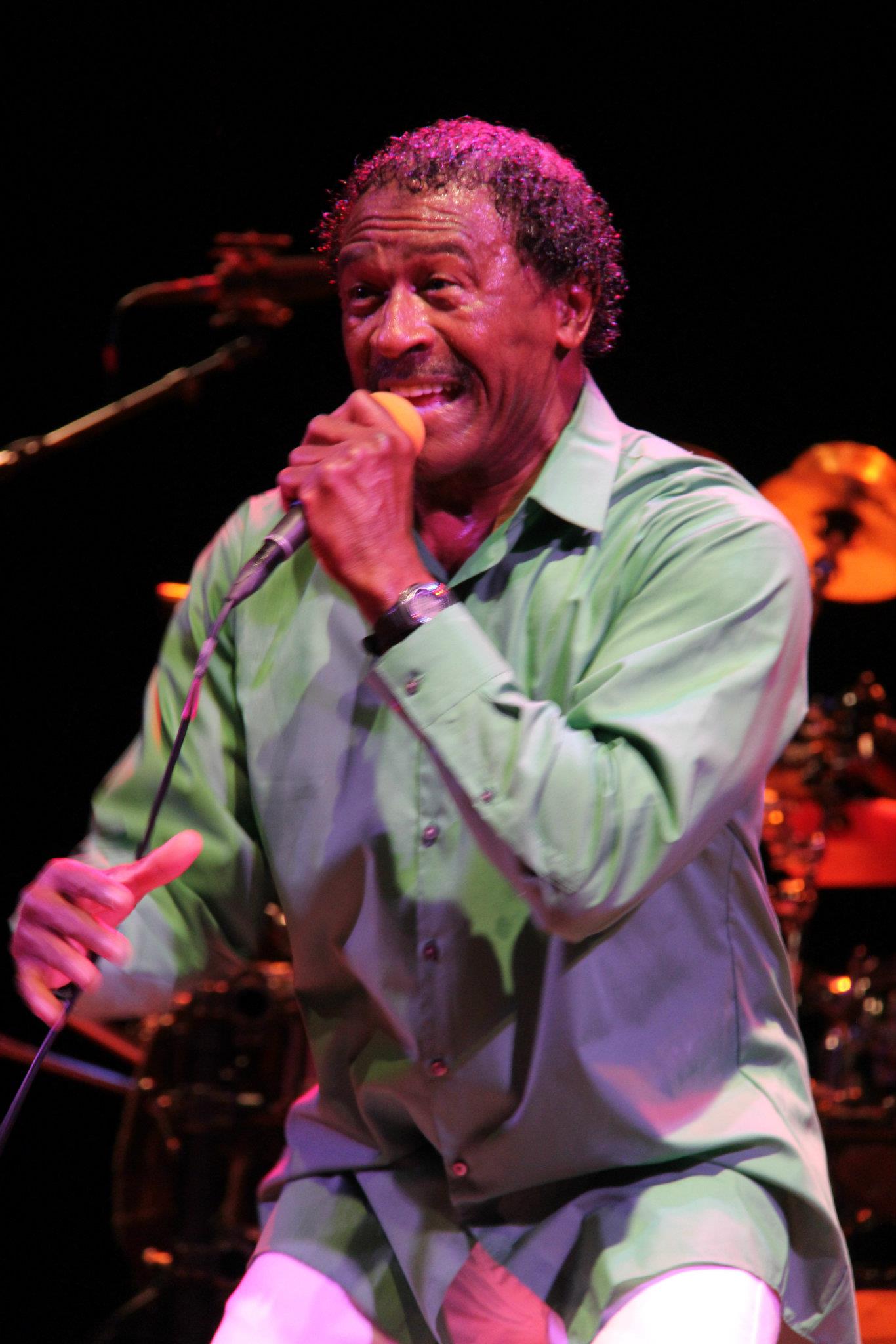 Napoleon Murphy Brock | Boulder Theatre
Napoleon Murphy Brock | Boulder Theatre
NMB: And he knew Miroslav…and it was just people who knew people. Ruth is the one who introduced Chris to us. He did some sessions with Don, and Don saw him playing drums, and said, “I just thought you played percussion, I didn’t know you played drums.” And he said, “hey, we need a drummer, you want to come check it out?”
He said, “yeah.”
Don asked him if he knew Zappa, and this guy knows Zappa backward and forward, backward and forward. I’m telling you, it was unbelievable.
GW: So, this tour is billed as “Roxy and Elsewhere and more.” Are we going to hear Roxy and Elsewhere in its entirety?
NMB: We’re going to play everything from Roxy except the “Dummy Up” thing, because we can’t do that without Frank and Jeff Simmons, number one. But I’m doing a version of that, and we’re doing “Pygmy Twilight.” We’re going to do every song on the album except the “Dummy Up” routine about smoking the high school diploma and all of that; and one other song we’re not going to do is “Be-Bop Tango,” we’re not doing that. We’re going to wait until we come to L.A. and Bruce Fowler sits in with us, and then we’ll do “Be-Bop Tango,” because he’s the star of “Be-Bop Tango;” trombone player. We’re going to be doing some shows where Ruth and George and Bruce join us. They’ll mostly, probably be in L.A.
GW: Dang. I’m sure, nonetheless, you guys are going to kill it here (Colorado).
NMB: Oh, it’s going to be killer, man!
GW: I am beyond delighted with anticipation on this one, man. So you were saying that Garcia does Beefheart vocals. Should we look forward to some Bongo Fury stuff?
NMB: Yeah. We’re going to do “Debra Kadabra,” we’re going to do “Willie the Pimp,” and we’re going to do all of the rest of the stuff from Roxy: “Cheepnis,” “Oh No,” “Son of Orange County,” “Trouble Everyday,” “Anything You Wanna Do”—the last song on the album that I wrote with Frank. We’re going to be doing “Village of the Sun,” “Echidna’s Arf,” “Don’t You Ever Wash That Thing,” we’re going to do the whole album.
GW: Will the speed of “Village of the Sun” vary?
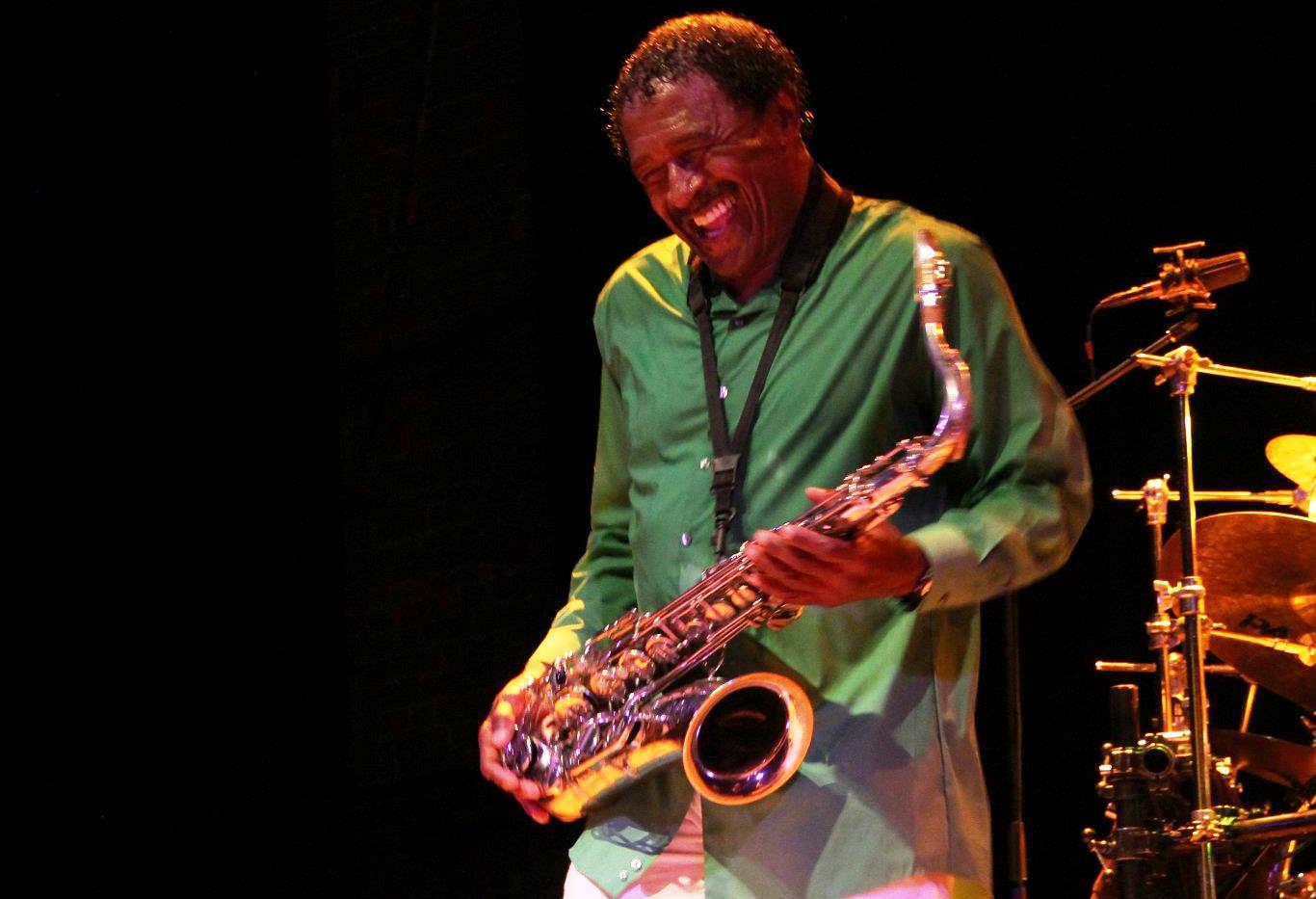
NMB: Same speed that it’s at on Roxy.
GW: Back in high school, I got a copy of Roxy on cassette, and that is what sold me. That version of “Village of the Sun” is absolutely amazing!
NMB: Oh yeah; we’re going to do it Roxy style.
GW: The Paul Green School of Rock Music; a music program that you’ve been involved with…
NMB: Yeah, I did a DVD with them.
GW: So this is after-school music programs for kids?
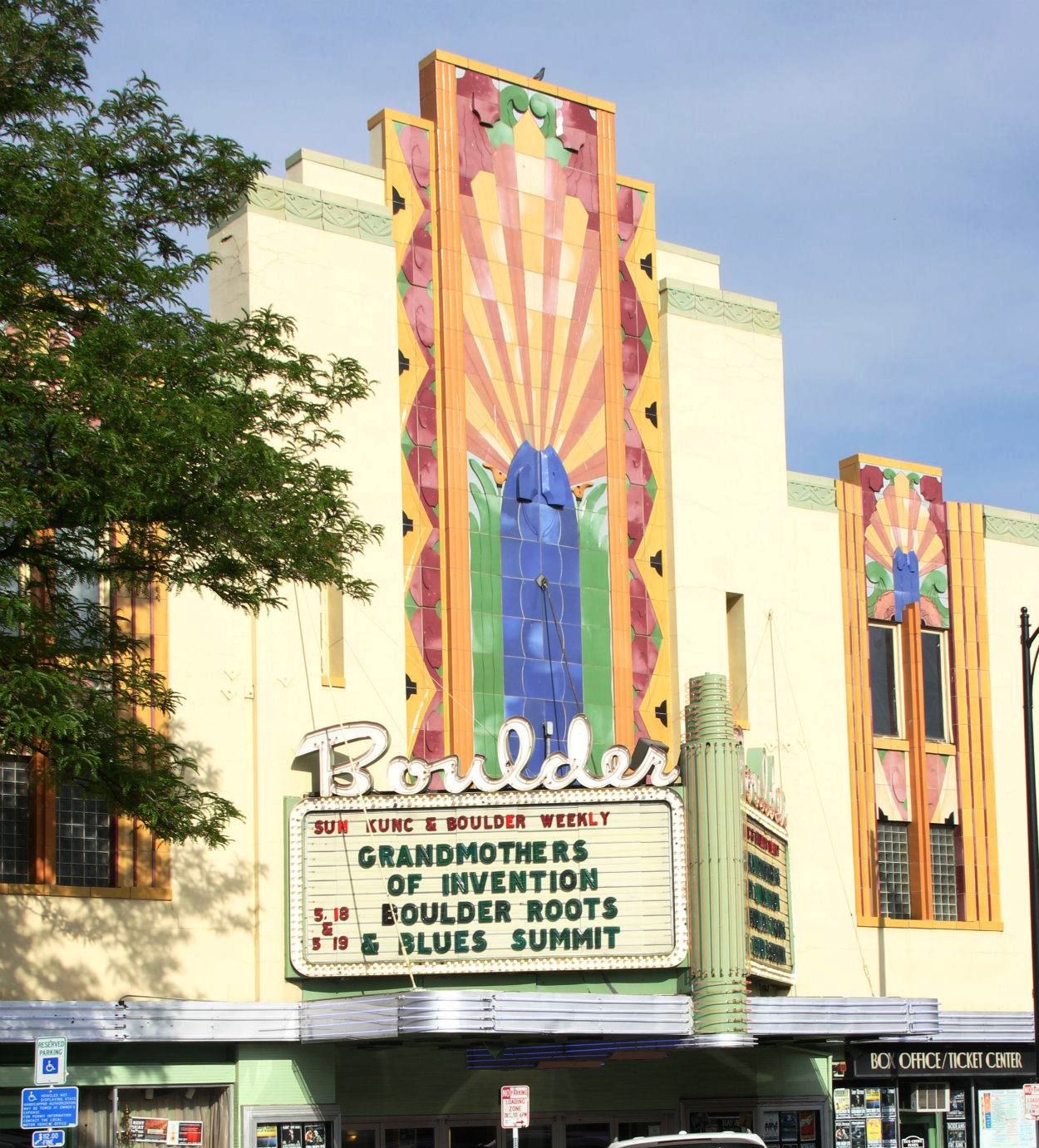 The GrandMothers of Invention in Boulder
The GrandMothers of Invention in Boulder
NMB: Yeah. Master classes; I did master classes. Mike Keneally and I, both of us. We did master classes with them. Basically what that was all about was trying to inspire students to get into music, and showing them the quality side of music, so they wouldn’t just be distracted by the bull-shit or the rap. We showed them the difference between real music and lip-syncing, or repetition.
GW: So you were actually working hands-on with the kids?
NMB: Absolutely. I did master classes with them.
GW: You played in Zappa Plays Zappa along with Dweezil (Zappa). What’s Dweezil like compared to Frank?
NMB: Dweezil is nothing like Frank. It’s hard for me to even believe that he is his son. Dweezil is a cover band guitar player. He’s okay, but it’s not something that I want to do again. Steve Vai, Terry Bozzio and I got together and we said, “okay, we’ll do this; we’ll do it for Frank,” because we thought we owed Frank because Frank did so much for us. We did that one tour. Dweezil is an okay guitar player, but he doesn’t understand the concept of his father’s music…and that’s too bad. If I were the son of Frank Zappa, I’d have been following him around like a roll of toilet paper. You know what I’m saying? Everything he shit, I would have picked it up, and learned about it. He never did that; he never even wanted Frank to show him how to play guitar. He wanted some guy from Guns ‘n Roses or something. He’s an okay guitar player, but he couldn’t work in this band because he doesn’t understand the concept of the music—not really.
GW: Different time period he was raised in, I guess.
NMB: When I started with Frank, he was still a baby, peeing in his pants. He’s okay, he’s got the name, he’s got Frank Zappa’s name, but he really doesn’t know the music, he really doesn’t know it. He doesn’t know the concept—that’s the sad part.
GW: It’s kind of a shame…I don’t want to get too into it…but with Gail (Zappa) not really being too happy about anyone playing Zappa stuff—
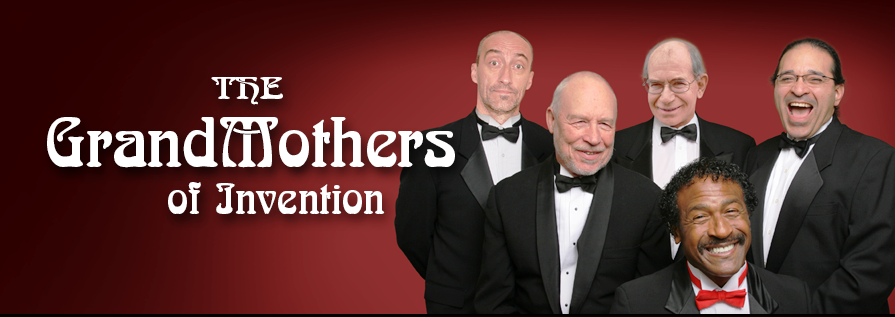
NMB: That’s sad too…the whole atmosphere around that family…it’s too bad. It’s really sad; it’s too bad.
GW: My buddy made a joke on a public forum about sending me a link to a site with Zappa bootleg recordings…he said he’d send me the link privately as he was worried about Gail taking him to court. It’s just a bummer that she doesn’t share in the celebration of the legacy of music that he left behind, that you guys are capable of, and willing to keep playing—
NMB: --I know. It’s too bad…it’s too sad. But like I said, Dweezil is an okay person, but he really doesn’t understand the concept of this music, and he thinks it should be played exactly the way it is on the record. What he doesn’t understand is that the way most of it is on the record, some of it—it wasn’t done that way on the road. We were very flexible on the road.
GW: That’s the beauty of it.
NMB: That was the beauty we created every night. Every night, we did, for example—you’ve seen the video “Dub Room Special,” the DVD, right?
GW: Yes, sir.
NMB: So you know about “Room Service?”
GW: Yes.
NMB: Okay. “Room Service,” every night, was different. Every night, it was completely different. If you listen to the “Room Service” on Helsinki and you listen to the “Room Service” on the Dub-Room Special—they’re completely different. The premise is the same, but the way we go about it is different, because we were playing a little game with each other. We were creating on-the-spot.

GW: It was the BEST! I still pull stuff off of the internet and listen to different versions of songs. It might be the same year and the same tour, but it’s just so exciting to wonder, “What’s going to happen on this version? What little idiosyncrasies are going to exist on this particular version?” Aside from the instrumentation and the knowledge you have behind your instruments—the banter is always huge, always interesting. I’m always like, “I love how he says this right here, or”—
NMB: Right, right, right.
GW: I love that shit. My wife rolls her eyes at me. She loves you guys too…but she’s like “oh, my god, how many times are you going to listen to…whatever it is…”
NMB: But it was genius, it was genius because it was so creative all of the time, and you never knew what was going to happen next—
GW: It was so spontaneous—
NMB: Right, right, right. Dweezil don’t allow for that in his band; he doesn’t like that…spontaneity, you know. They even came and told me that I was singing the wrong words…to songs that I recorded. And I was like, “huh?”
 Grandmothers of Invention
Grandmothers of Invention
They said, “Those are the wrong words,” and I was like “Noooo…okay, what do you want me to sing? Okay, fine, let’s move on.” If you’re going to come to me and tell me, the guy who recorded this music when you were in diapers, that he’s singing the wrong words, and you don’t think that I have the respect- the self-respect and respect for the music that I helped put together, that I helped create, that was created around me, the person who I was…I mean, he hired me to be the front-man. Frank knew things that only I did, he knew things that only I knew about myself, and the fact that he had the insight and the genius to pick that out, and then to expand upon it the way he did, I went, like, “wow, okay, okay, that’ll work.”
GW: So we can expect floodgates open on this tour with the banter and the improv?
NMB: Oh…everything! It’s all there. Let me tell you something that you’ll be able to do, Dave, here’s something you’ll be able to do…and this is something that has caused people to leave the concert in tears…and I’m telling you this honestly…when you come and hear us play this music, and you feel what we’re going to be transmitting to you, you’ll be able to close your eyes and you’ll swear that Frank is there, because we never leave what he gave us, what he created, and what we were there to create with him—we are bringing it back—the quality and the integrity of the compositions—the way that they were composed, and we’re going to perform them the way they were composed, and for the reasons that they were composed…and all of the banter and all of the spontaneity and all of that stuff—from the first Mothers when Don was there, throughout the seventies when George and Tom and I were there—it’s all in our set, it’s all there in the way we play the music. The way it was meant to be.
GW: What’s going on in your own personal world today? You doing any writing—
NMB: I’m doing a lot of writing. I’ve got a classical composition on my cd Balls (that’s all original music), and there are three symphony orchestras that have played it already, and I’m still getting calls for me to send out the charts to orchestras. I perform with a lot of classical orchestras: the Lulea Symphony Orchestra, the Metropol Orchestra of Amsterdam, Holland—matter of fact, 2009, George Duke and I did a thing with the Metropol Orchestra call George Duke and Friends where we only played George Duke’s original music and my original music with a 54 piece orchestra. The world-famous Metropol Orchestra of Amsterdam, Holland. You can go on YouTube and put in “George Duke, the Netherlands, Metropol 2009” and you can see clips of it. Trust me, its there.
GW: Napoleon, I’d like to thank you for all of the music over the years and for fighting through all of the bullshit and keeping it alive and doing the music the way the music was meant to be done. Looking forward to seeing you in Boulder on May 13th, I’ll be down at the Boulder Theater with my friends.
NMB: Well, you tell them if they want the experience of a lifetime, if they like Zappa, they won’t want to miss this. I get up every morning and go to the gym; the first thing I do is I have a seventeen ingredient smoothie—that’s all fruits and nuts—and I go to the gym and I work out for three hours, five days a week. That’s what I do first, everyday, five days a week. That makes me healthy, and every time I go there, I reverse the aging process, as opposed to aging; you understand what I’m saying. So, when you come and see me on stage, if you missed the Roxy, you’ll get a chance to see it again, in all of it’s choreographed gymnastics. I do everything I did then, and more, because I know it better now. Just come and enjoy yourself.
GW: You bet your ass.
NMB: We enjoy ourselves, we have fun, and otherwise we wouldn’t be doing this. The only problem we have is going “damn, we’ve got to stop now.” The other problem we have is that we can’t play all of the songs we know in one night…it’s not possible.





